Globazine 2024





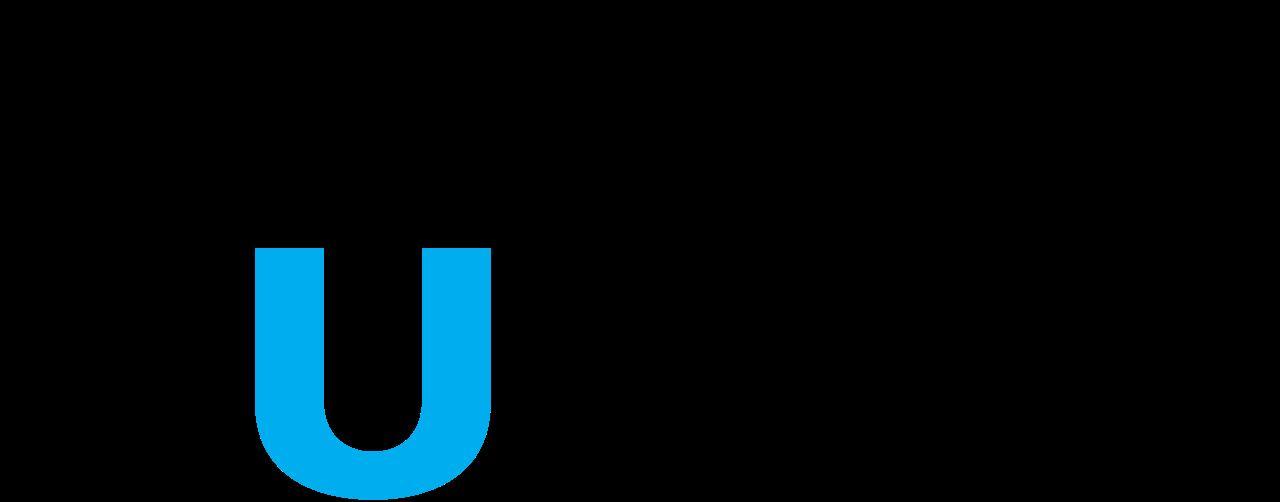









Dear readers,
Welcome to the third edition of Globazine, the magazine of the Delft Global Student Club. In this year’s magazine we bring you along on a journey of Empowering Change. In a world constantly evolving, we hope to inform, inspire, and perhaps even encourage you to engage with the world of Global Development. And to find an answer to the question what your position in contributing and engaging in Global Development is?
Within these pages, you'll discover the Delft Global Student Club (DGSC), an organization committed to promoting global development and sustainability. We introduce DGSC, presenting our board and ambassadors, as well as some pages showcasing what DGSC offers plus some of this year’s activities. This edition also features an interview with Jenny Dankelman, an inspiring professor involved in the TU Delft | Global Initiative. Furthermore the magazine showcases different students projects in the Global Development.
We hope you enjoy this Globazine and in some way inspire you in empowering change!
Renske Verbeek Media & Communication Committee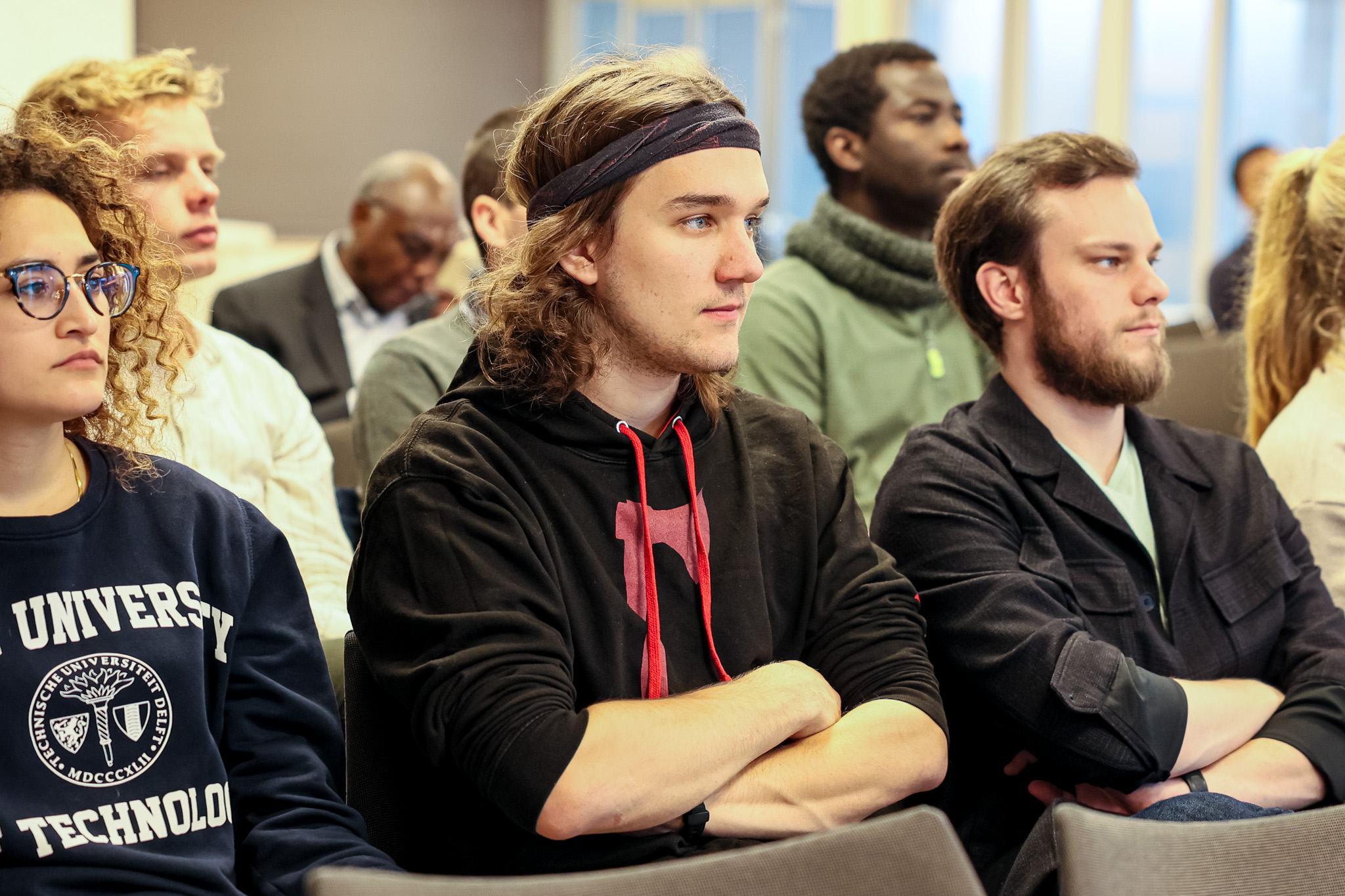
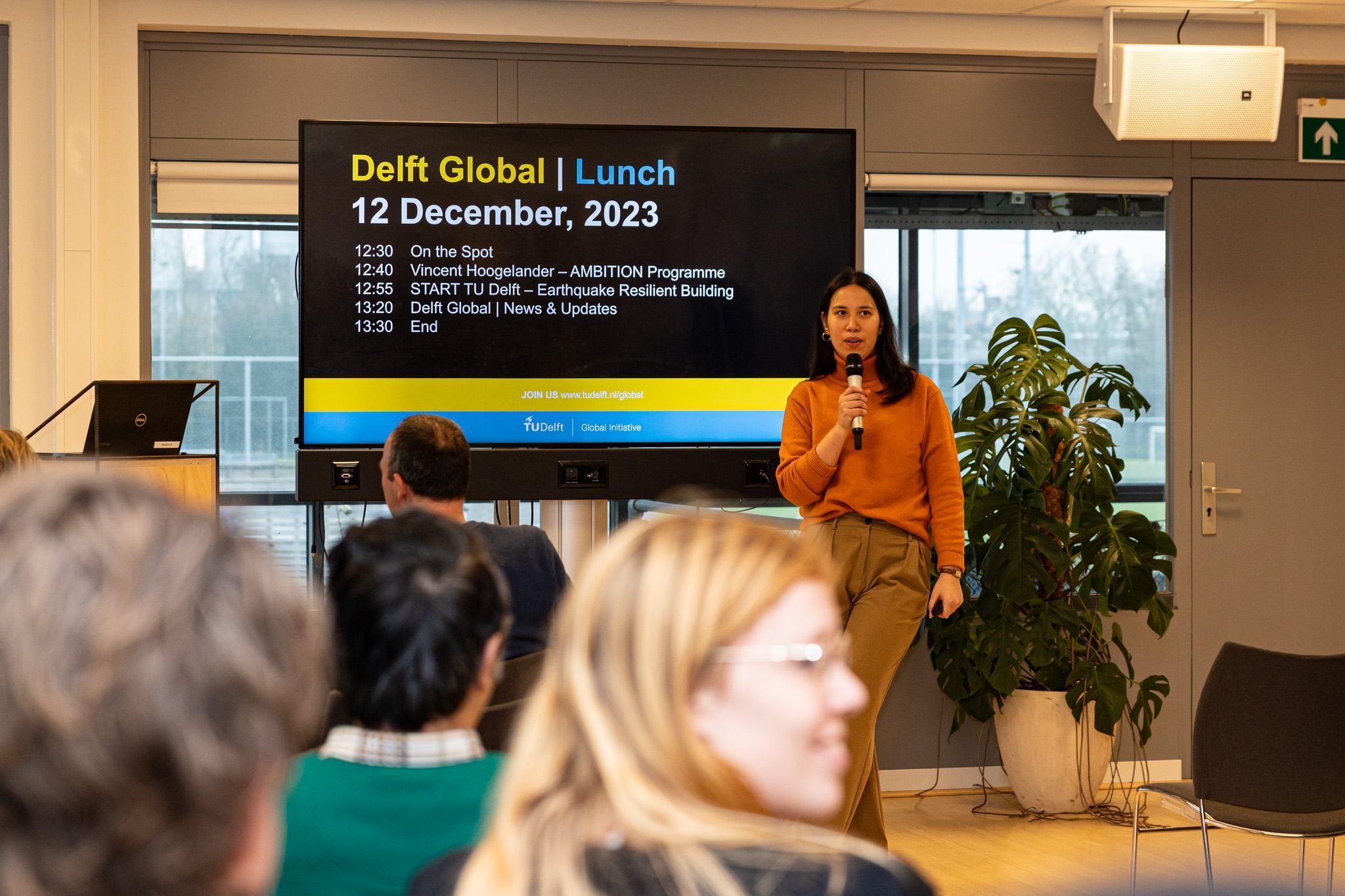
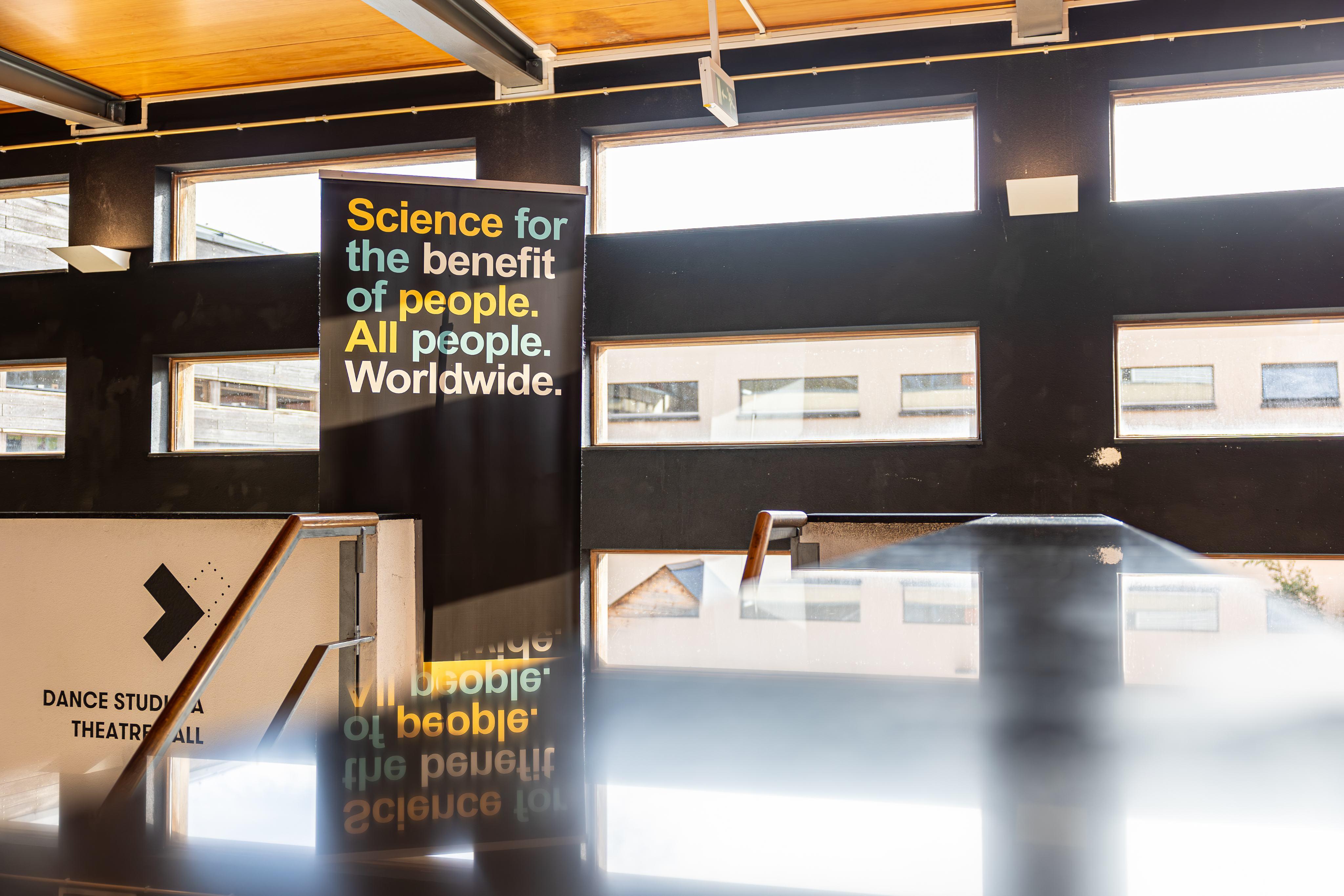
TU Delft | Global Initiative is the platform for education, science and innovation at TU Delft that advances science and technology for the benefit of people worldwide by addressing global challenges. The initiative aims to bring together expertise of multidisciplinary teams to find sustainable solutions for pressing societal challenges faced by people in Low and Middle Income Countries (LMIC’s) in Sub-Saharan Africa and South-East Asia, such as food security, affordable and reliable energy, accessible healthcare, affordable housing, water management, clean drinking water and sanitation for all. The research is focused on five theme: Healthcare, Water, Energy, Disaster Resilience and Response, and Urbanisation. Notably, the solutions to these challenges are urgent in LMIC’s and relevant worldwide. The development of these solutions involves creative, out-of-the-box, high quality scientific and technological innovations in close collaboration with local partners with a tangible output that directly improves people’s lives. Students and researchers at TU Delft | Global Initiative work hard to develop cost effective, self-reliant, low-maintenance and easy-to-use tools, services and products that create a better living environment for all.

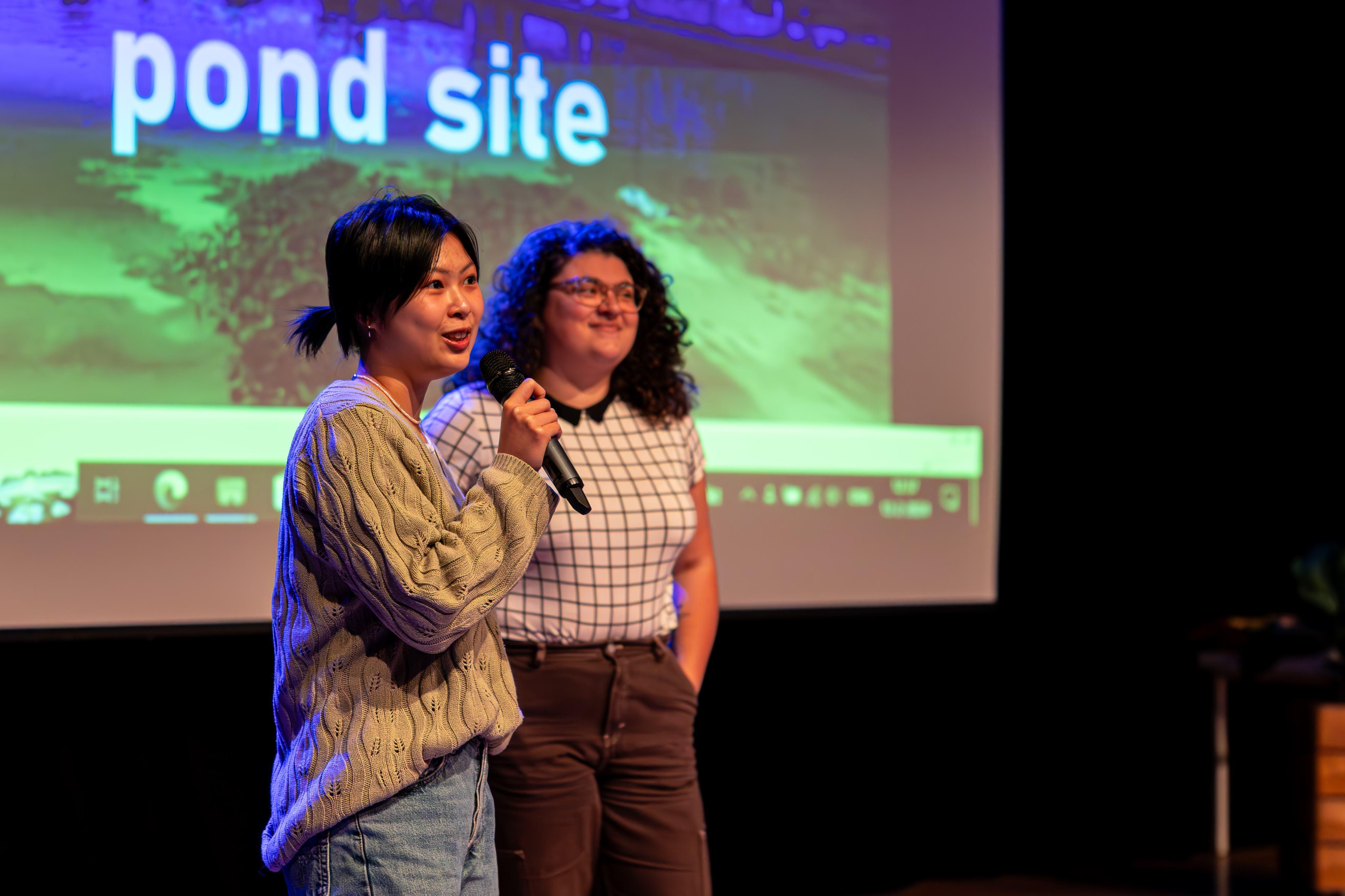
Delft Global Student Club (DGSC) is the student association of the TU Delft | Global Initiative that serves as the bridge between the students of TU Delft and the scientific community of the Delft | Global Initiative. Established in 2021, the club aims to foster collaboration between the students and the researchers in developing science and technology for the global community. DGSC accomplishes this by planning networking events with relevant industry stakeholders, lunchtime presentations about ongoing and completed projects, multi-cultural celebrations, as well as engaging in magazine content and cultivates media involvement to enhance its outreach and impact. The goal of DGSC is to raise awareness about global challenges among the student community and inspire them to contribute to these issues by providing a platform and necessary resources. Consequently, the club is actively engaged in overseeing the progress of students pursuing global development issues through the Opportunity Platform and the Student Project Support of the TU Delft | Global Initiative as well as sharing their success stories.
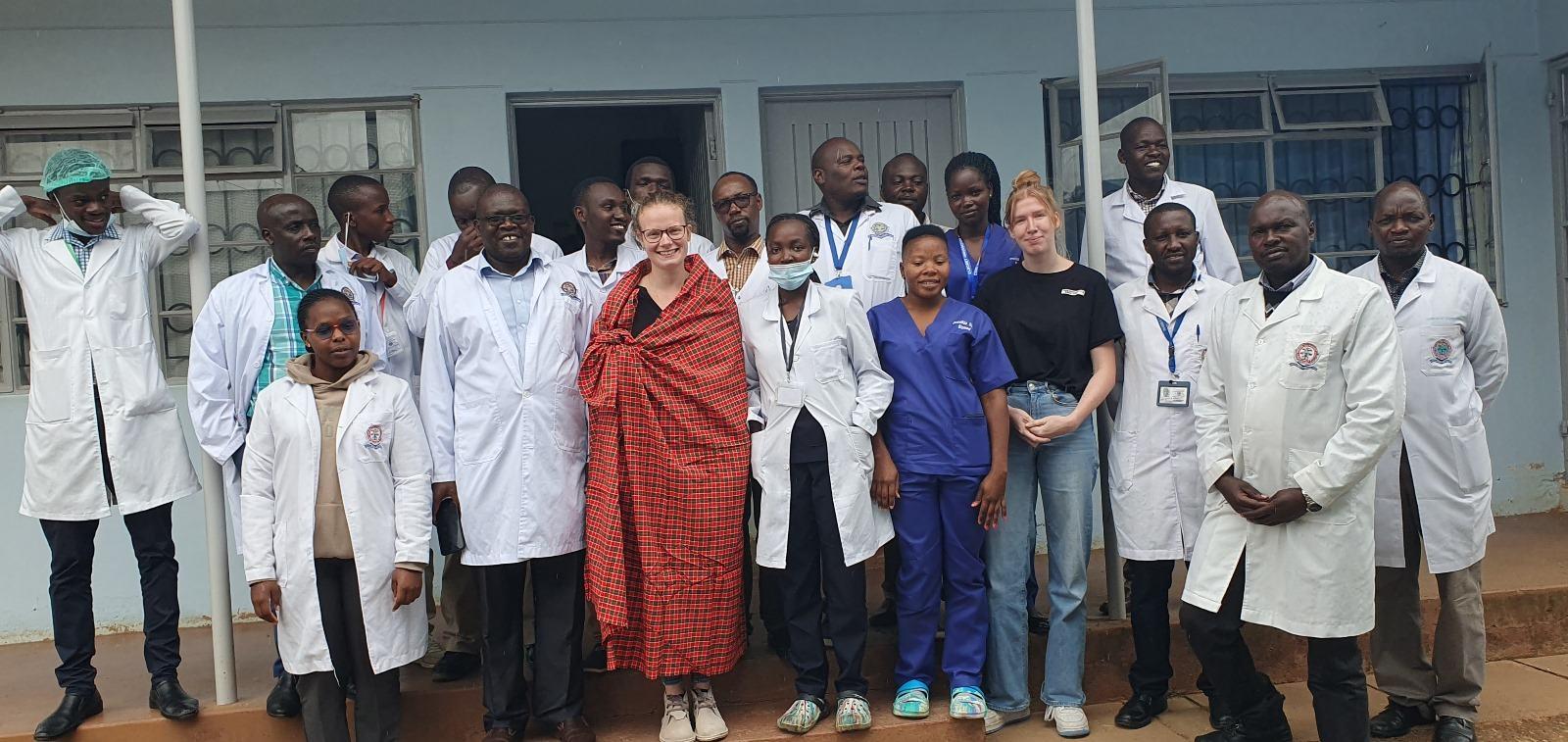
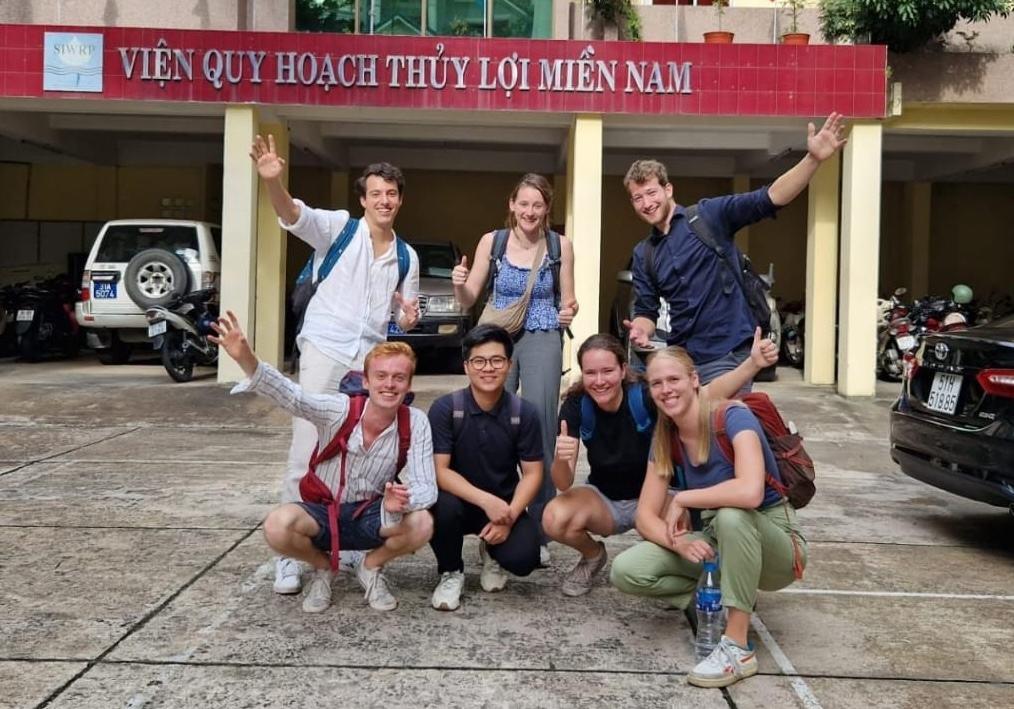
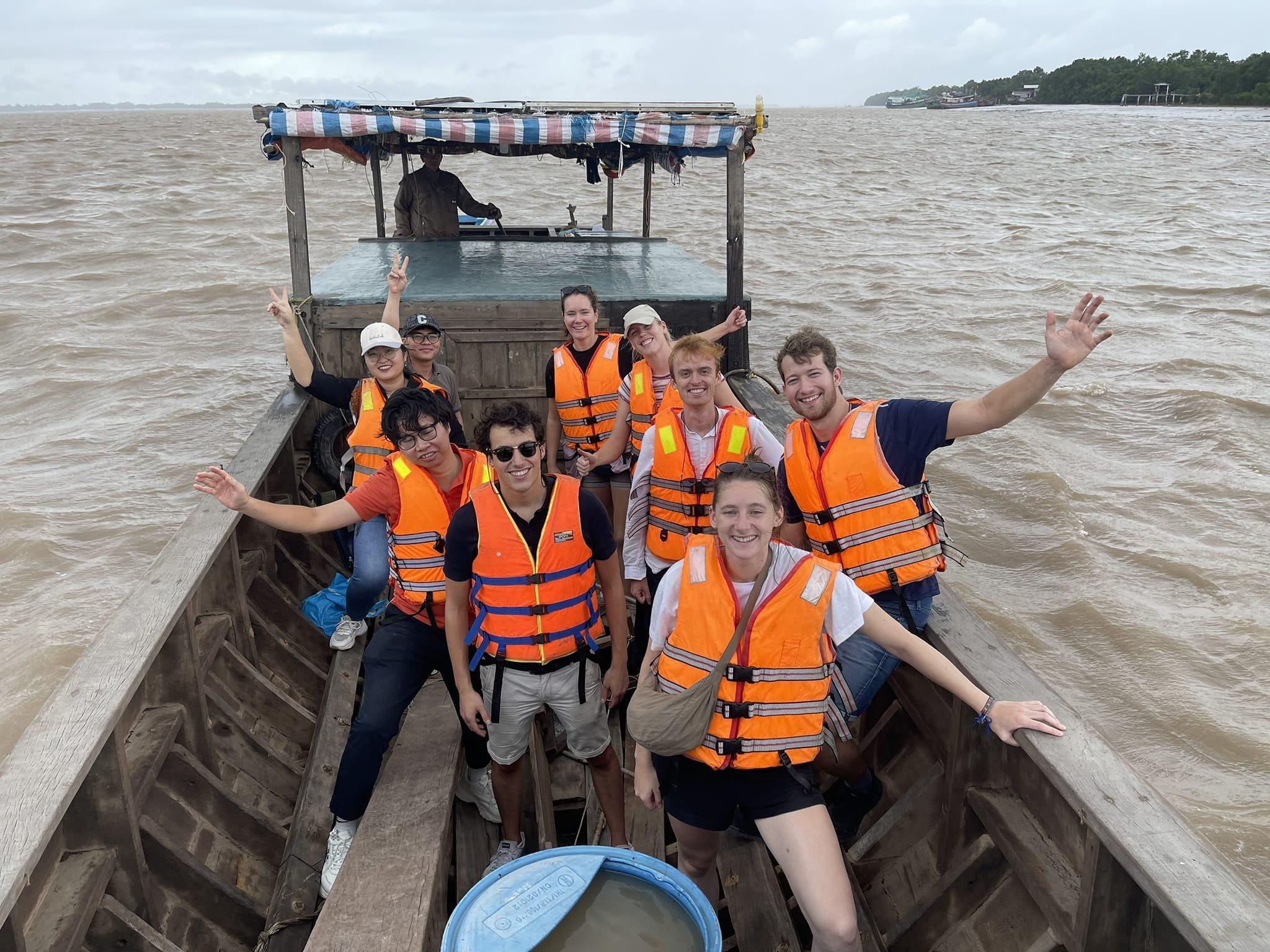
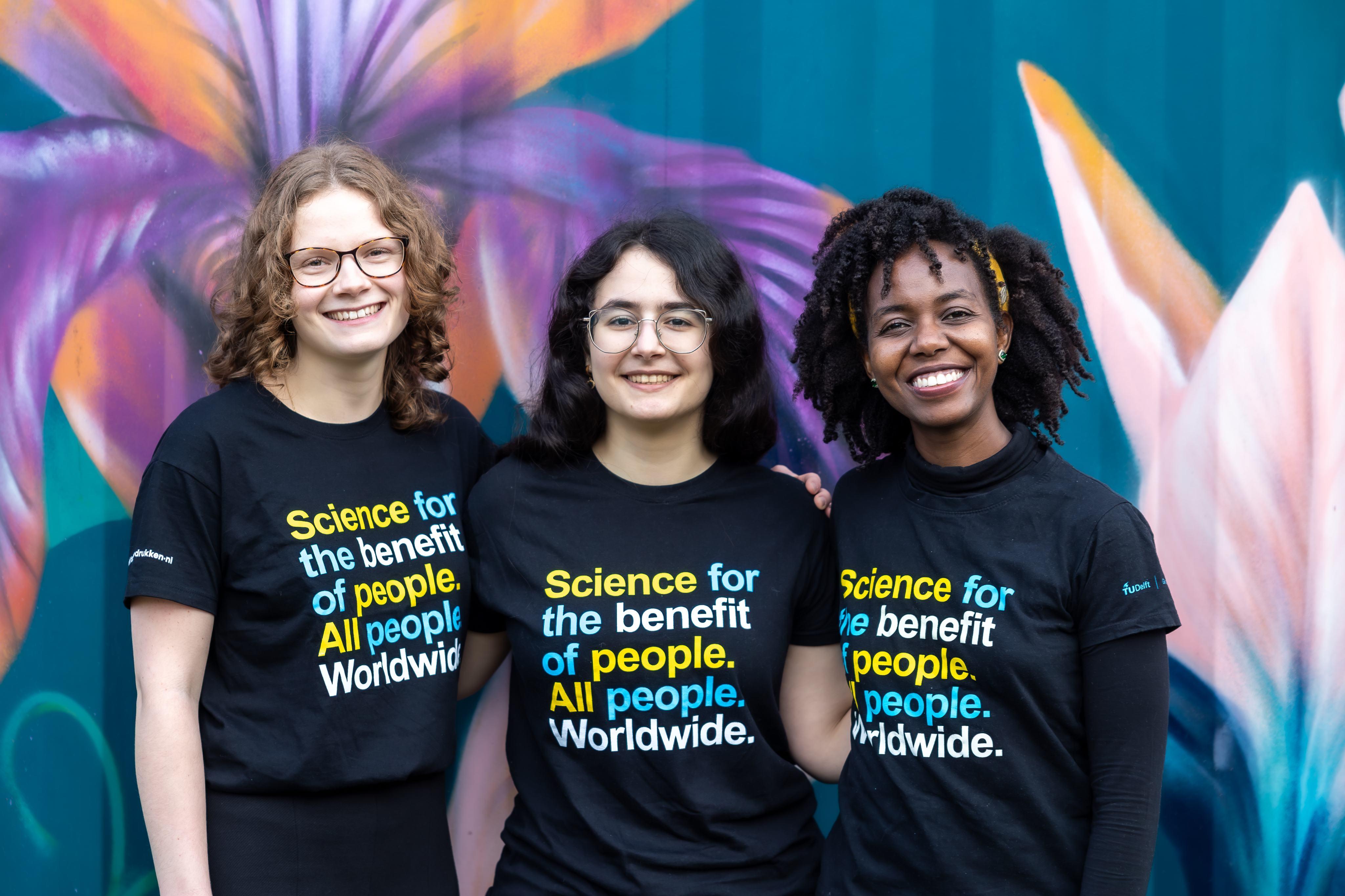
The board of Delft Global Student is the heart of the club, working hand in hand with both Delft Global Initiative staff and the students to increase awareness on global project. Each board member has individual responsibilities within the board and also supervises one committee.
By Mobina IzadpanahThe Chair: Karin van Minnen
Karin is in her second year of the Biomechanical Design master's program at Mechanical Engineering. She joined DGSC in 2023 after completing an internship in Kenya, as she wanted to stay connected to similar projects aimed at global development and to get in touch with other people who are interested in the same topics. She is the board’s Chair and also supervises the Events & Community Engagement committee (the formal section). Next to her studies, she likes to travel and do different kinds of sports such as speed skating, tennis, volleyball, cycling, going to the gym, or other random sports.
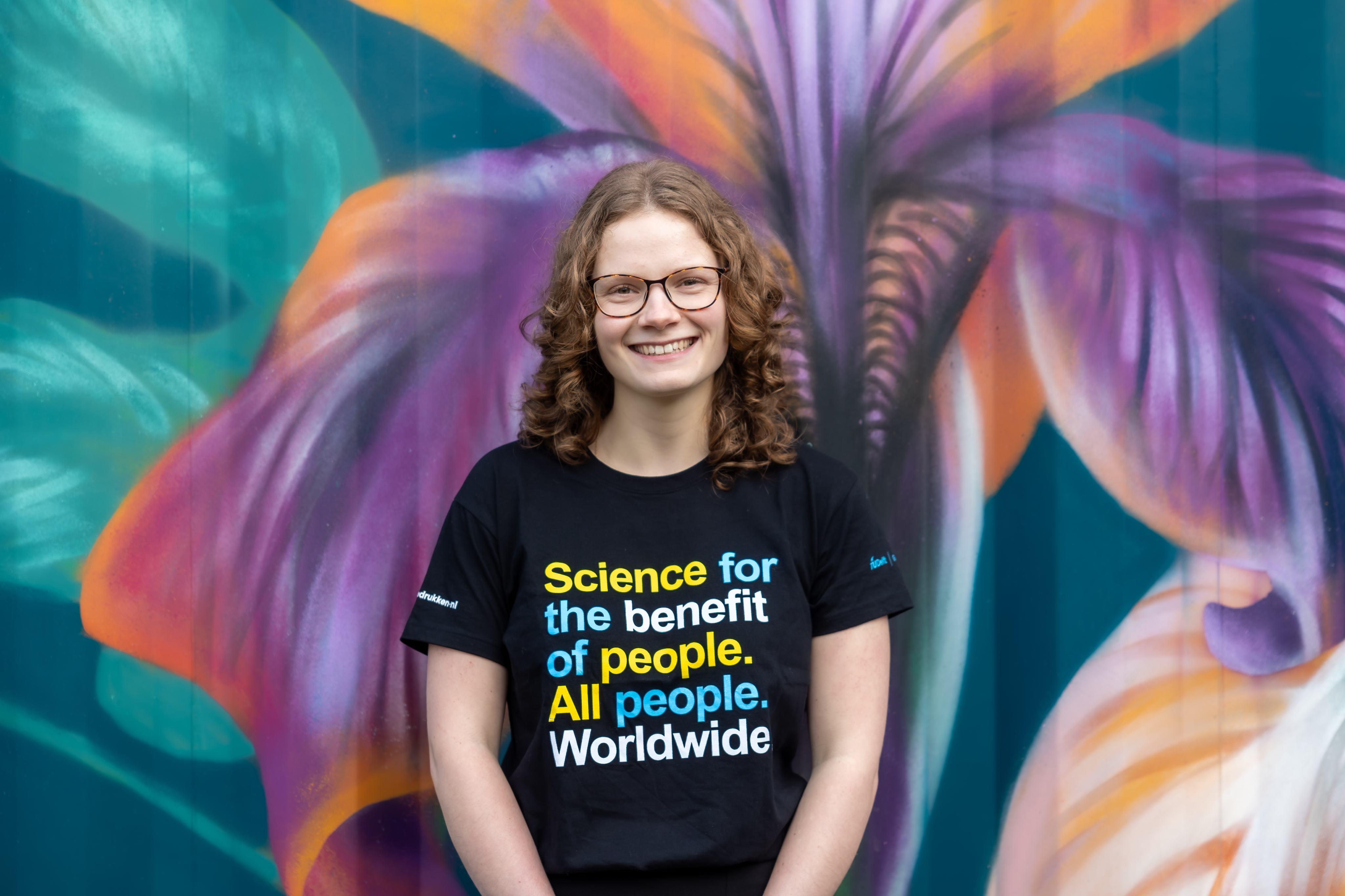
Mobina is 23 years old and also in her second year of BioMechanical Design master at Mechanical Engineering. Last year, she joined DGSC as an ambassador because she was amazed by the diversity of the community. As she enjoyed her journey, she joined the board as Events & Communication Officer this year. Currently, she supervises both the Media & Communication and Events & Community (the informal) committees. In her free time, she enjoys playing music, science-fiction movies and traveling.
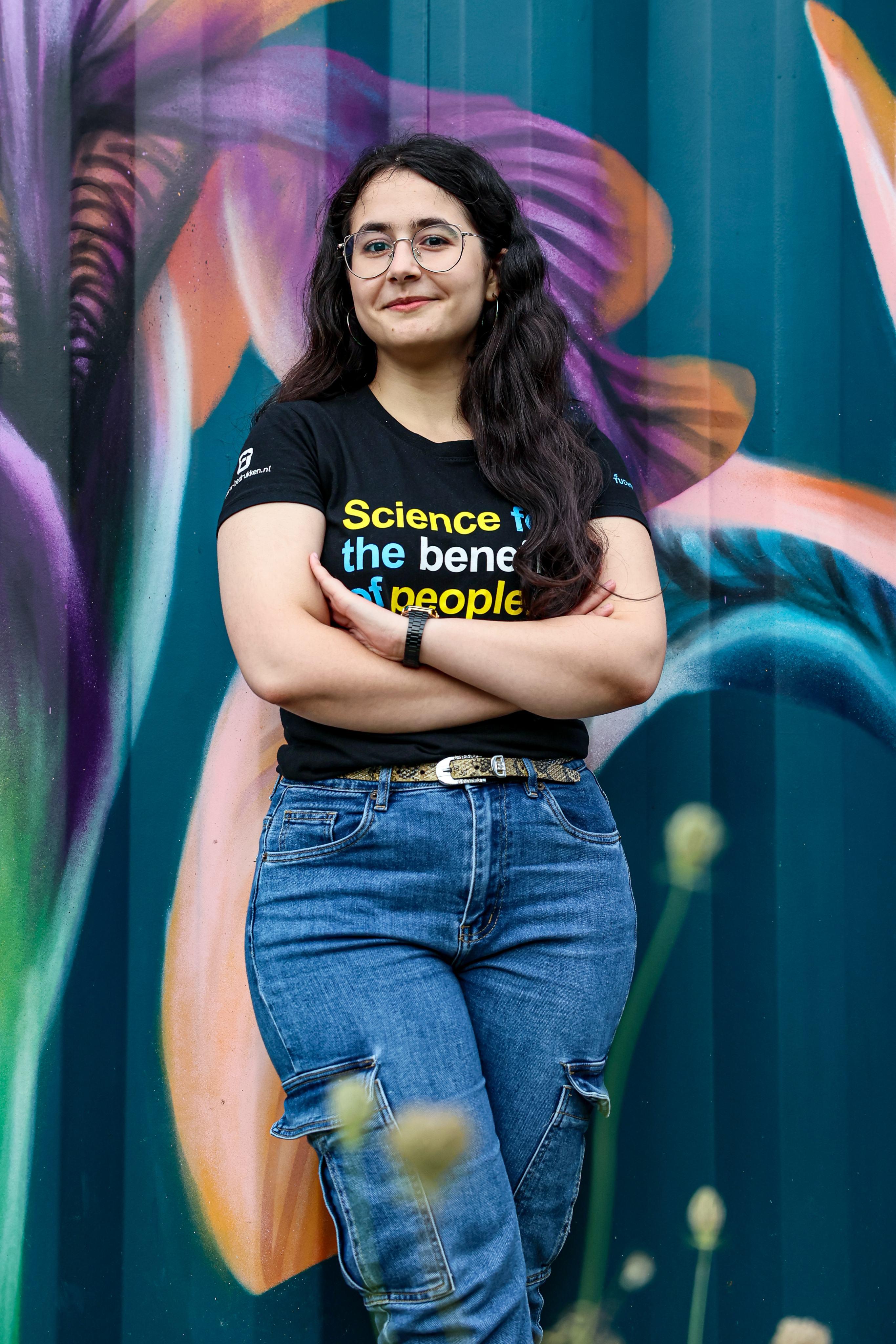

masters in Transport, Infrastructure, and Logistics. She joined DGSC first in 2022 as an ambassador with the purpose of supporting and advocating for more research in the Global South. This year, she is the Project & Administration Officer of the board and also supervises the Education & Research committee. Her favourite hobby is hiking and she can tell you that the view from Kilimanjaro is breathtaking!
Student ambassadors are the pillars of the DGSC, they are active within DGSC and part of several committees. Their tasks are raising awareness about Delft Global Initiatives, organising events within the community, making DGSC visible on several platforms and highlighting student projects within the global development. With their enthusiasm and commitment to global development they represent DGSC to the outside world. Student ambassadors create opportunities for engagement and build a network of like-minded individuals who are dedicated to creating positive change in the world.
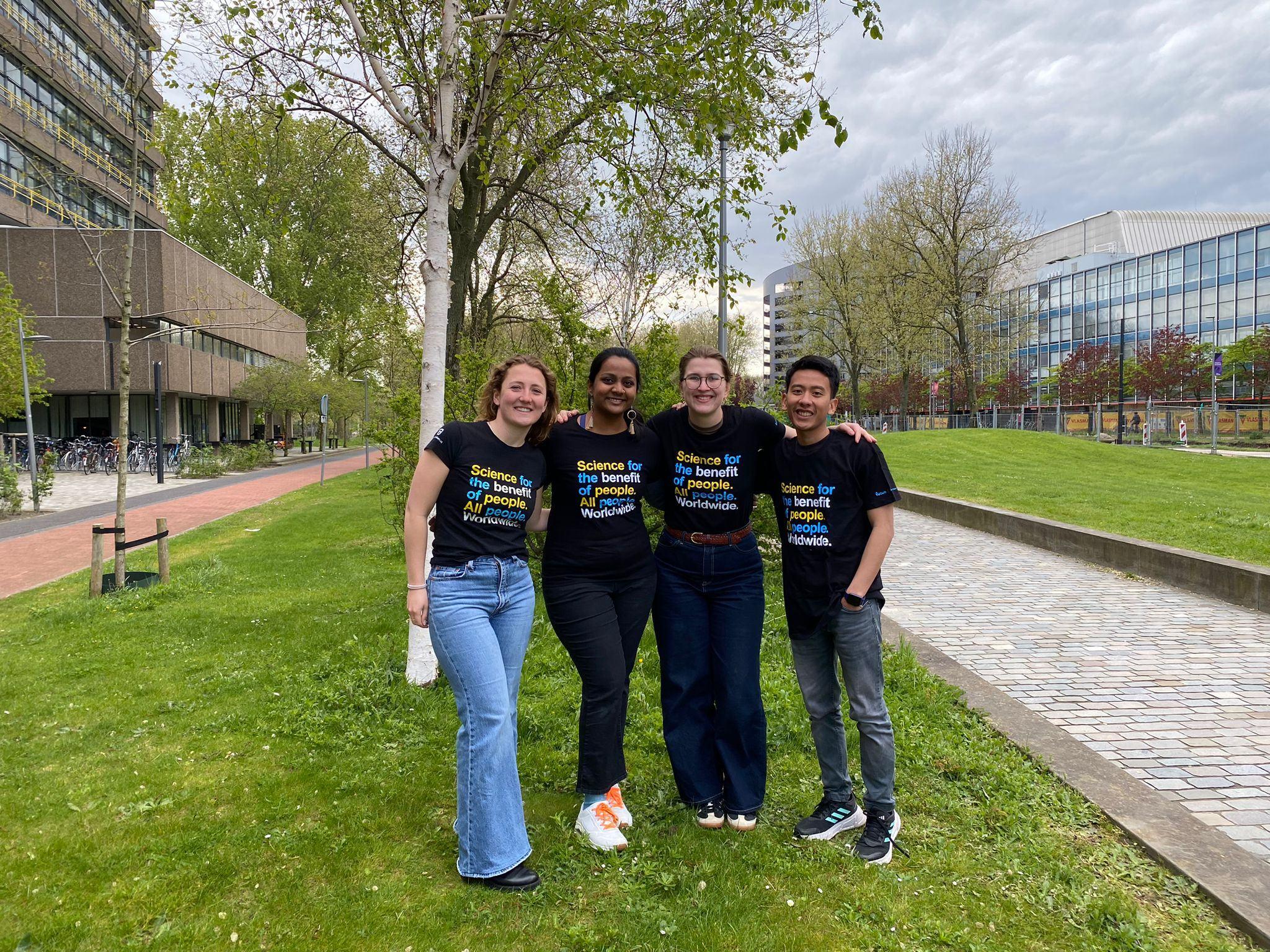
This year’s Media & Communication Committee consists of Adinda, Anne, Fahmi, Mobina, Kalyani and Renske. This team is responsible for creating this magazine and managing our social media presence. From content creation to online engagement, this enthusiastic team plays a key role in shaping DGSC’s public image
This year’s Events & Community Engagement Committee consists of Ash, Chris, Kacper, Neeha, Nikolas, Sabrina and Thirza. This group is responsible for organizing the formal and informal events on behalf of Delft Global Student Club. From a movie night to an opportunity market, this team organizes events for community engagement.
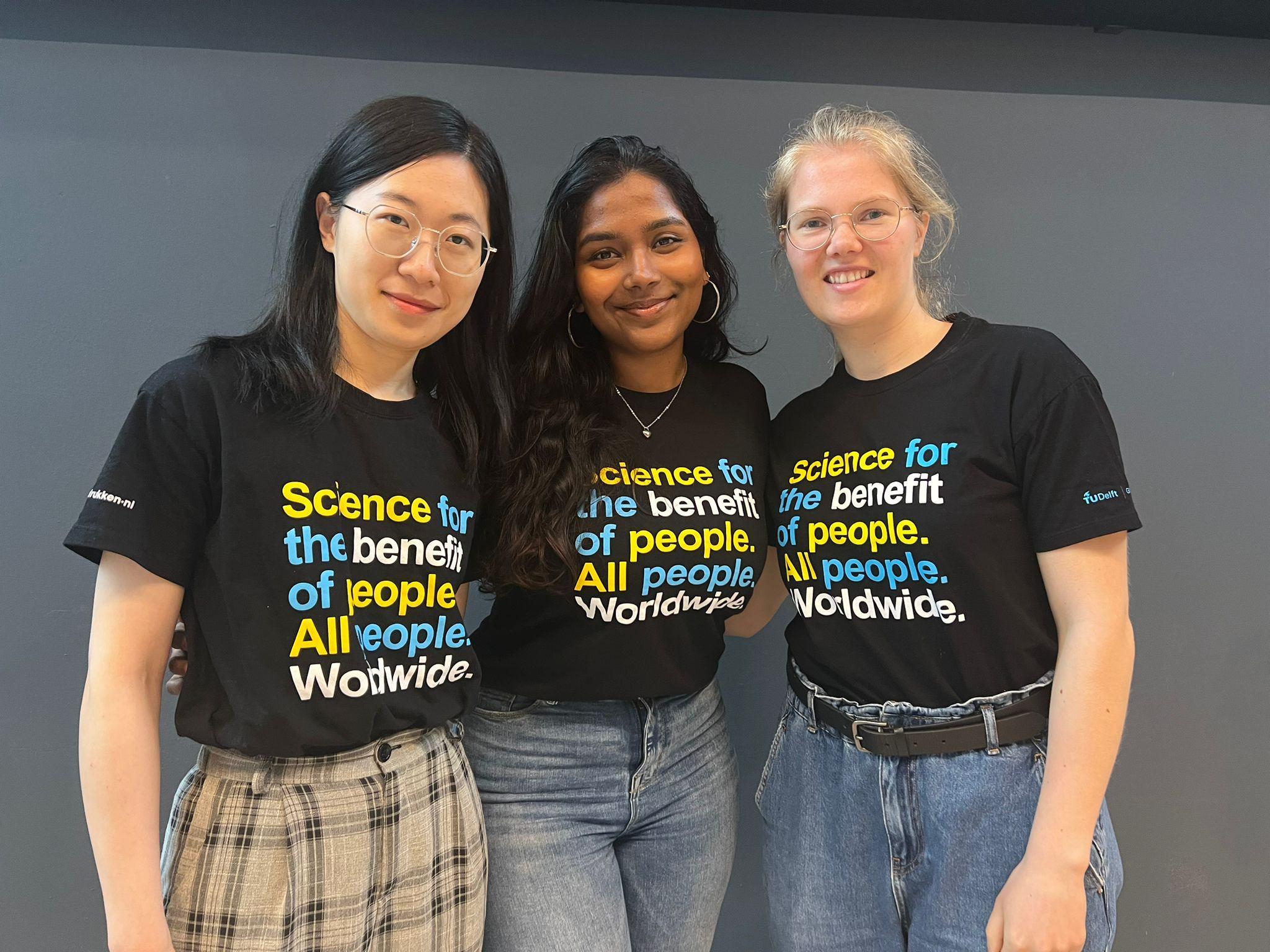

This year's Education & Research Committee is comprised of Christiaan, Jacqueline, Tjark, and Watetu. The committee proactively seeks student opportunities in global development, such as internships or graduation projects, and fosters partnerships with institutions and organizations that share the club's objectives. Their primary goal is to enhance student engagement by linking them with relevant opportunities. To achieve this, the team maintains regular communication with both companies and researchers, striving to cultivate strong and mutually beneficial relationships with them.
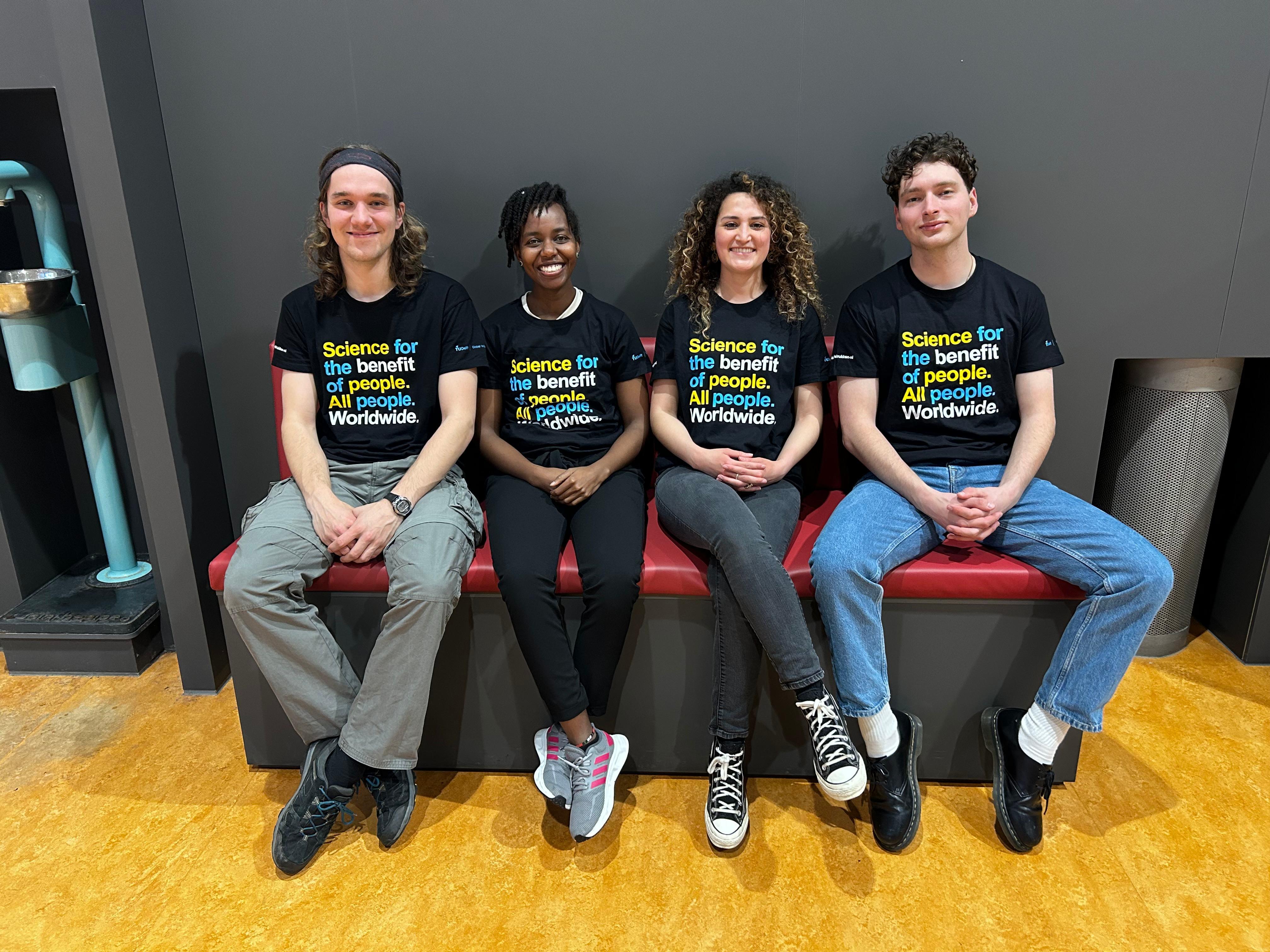
The Delft Global Student Club serves as the bridge between the Global Initiative research community and the students of TU Delft. Alongside its ambassadors, the club arranges networking events, lunch lectures, multicultural gatherings, and more. Additionally, they seek out various opportunities related to Global Development for students across all faculties. In the following section, we will provide an overview of what DGSC offers, primarily focusing on wat it can offer you as a reader.
Are you looking for a bachelor or master thesis subject or an internship in the area of Sustainable Global Development? The Student Opportunity Platform is the place to be! The Student Opportunity Platform is a portal that helps students who would like to work on global developmentrelated issues with finding the right opportunities. This platform connects students from all TU Delft faculties with internships, thesis topics, student projects and other opportunities within the sustainable global development field. Filter by study background, theme, and more, and get connected to students passionate about tackling global issues. The Delft Global Student Club is responsible for managing the platform by updating new student opportunities and overseeing ongoing projects. For any questions or suggestions regarding the platform, contact the Student Board and for specific opportunities, reach out to the contact person listed in the vacancy. You can find the Opportunity Platform on the DGSC website.
Student Project Support is the financial aid provided by TU Delft Global Initiative to students pursuing research projects contributing to solving the Sustainable Development Goals, for at least 2 weeks or more in low- and middle-income countries. A student is eligible for a maximum support of €250,- for individual projects and €500,- for student groups traveling for their project (having to apply as a group and not individually). For application you need a support letter by a TU Delft researcher/teacher as supervisor, a clear project description including which UN SDGs the project focuses on and a safety and security plan. For more information take a look at our website, you can fill in the application form online 4-6 weeks before your planned departure date. You may also send any further inquiries to our e-mail.
students-delftglobal@tudelft.nl
@DelftGlobalStudentClub
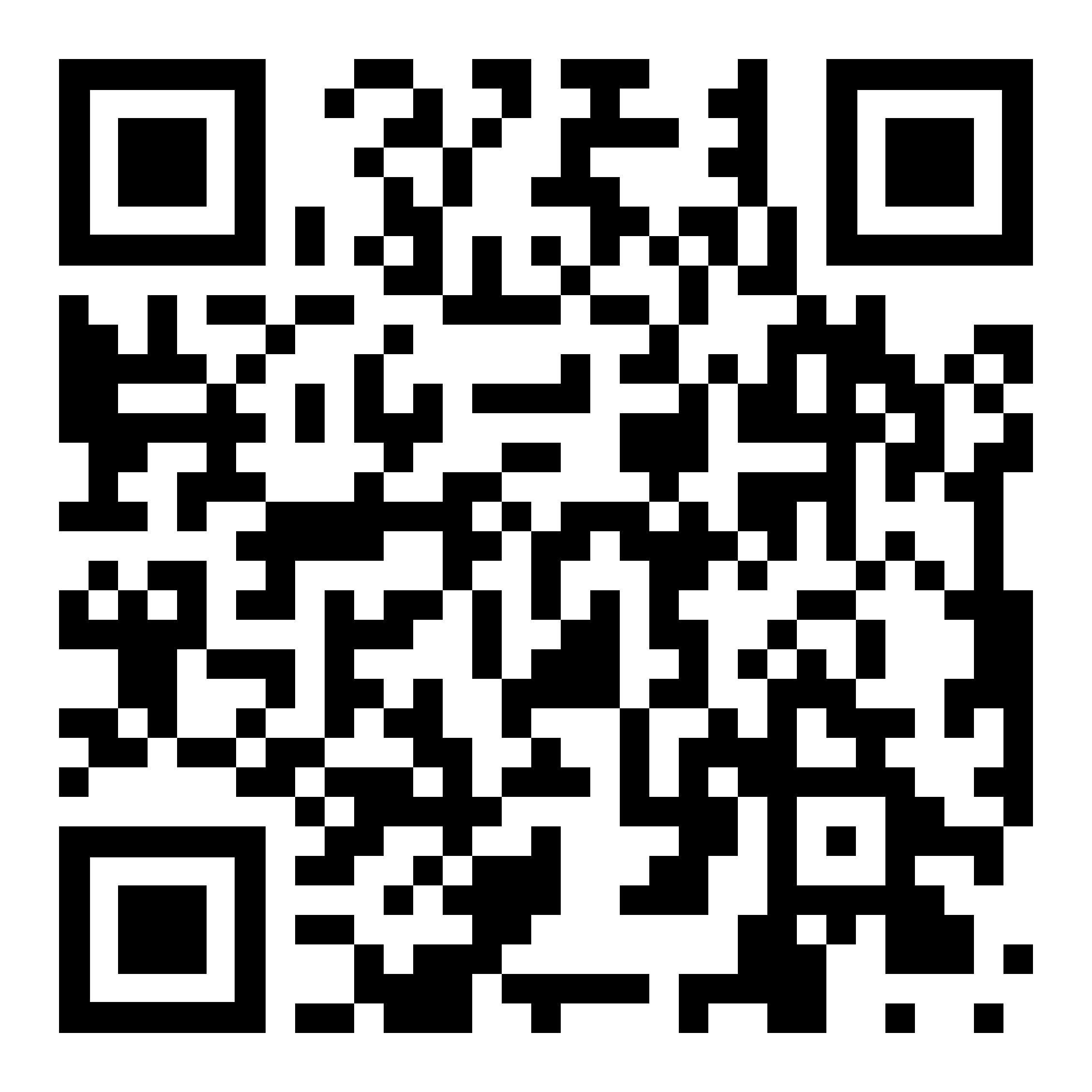
Are you planning to go abroad for a student project? Then don’t miss out on our mentorship program. Initiating your internship or (thesis) project can be daunting, especially if you are planning on going abroad to unfamiliar places. The mentorship initiative aims to bring together students and experienced mentors. With the programme comes access to exclusive WhatsApp groups for specific countries that serve as a platform to connect with like-minded peers and dedicated mentors. This enables students to engage in meaningful discussions, exchange insights, and build a support network, increasing the impact of internship experiences. Indicate your interest in the sign-up form on our website, and we’ll connect you with a mentor who is familiar with your destination.
Are you a student and interested in global development? Join the Delft Global Student Club! Members of DGSC can join events and by following our Instagram, you receive regular updates about the opportunities and events. We organise global lunches, movie nights, host an opportunity market and more! By being an active member from an early stage, keeps you engaged in the global community. To be kept up to date with our developments and activities, you can sign up for the Delft Global Student Club on our website. Hopefully we can see you at one of our events!
Empowering change for global development can happen in different ways. People dedicate their lives to researching the effects of climate change, fighting for social justice, doing disaster management, developing medical equipment for the global south, and the list goes on. At the TU Delft, we find people who have dedicated their entire professional careers to these fields, one of whom is Professor Jenny Dankelman. In this interview, we will dive into her career and learn more about what empowering change means to her.
By Anne Nijdam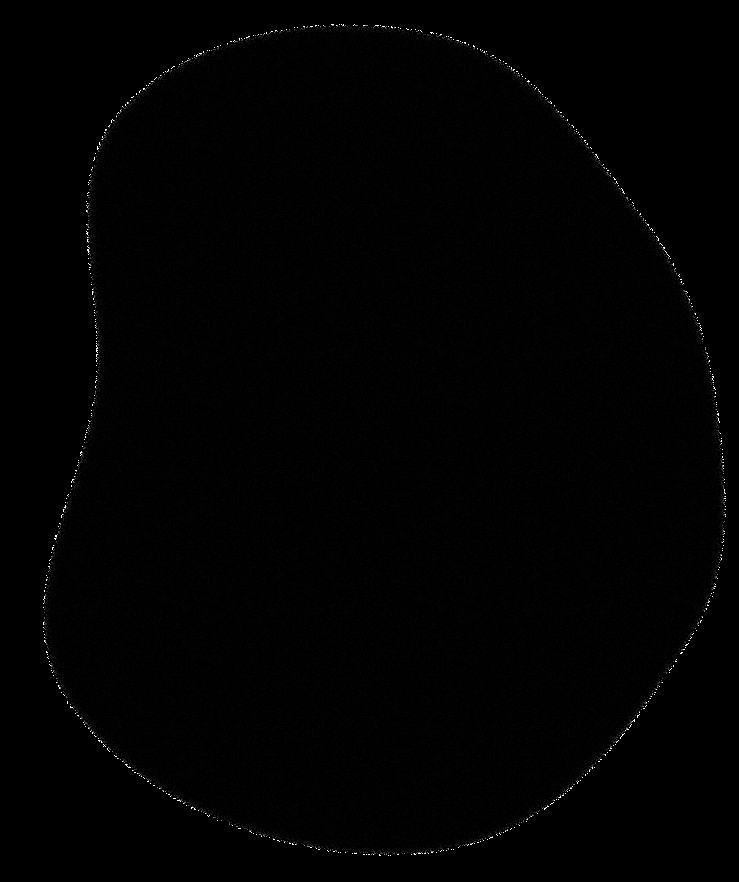
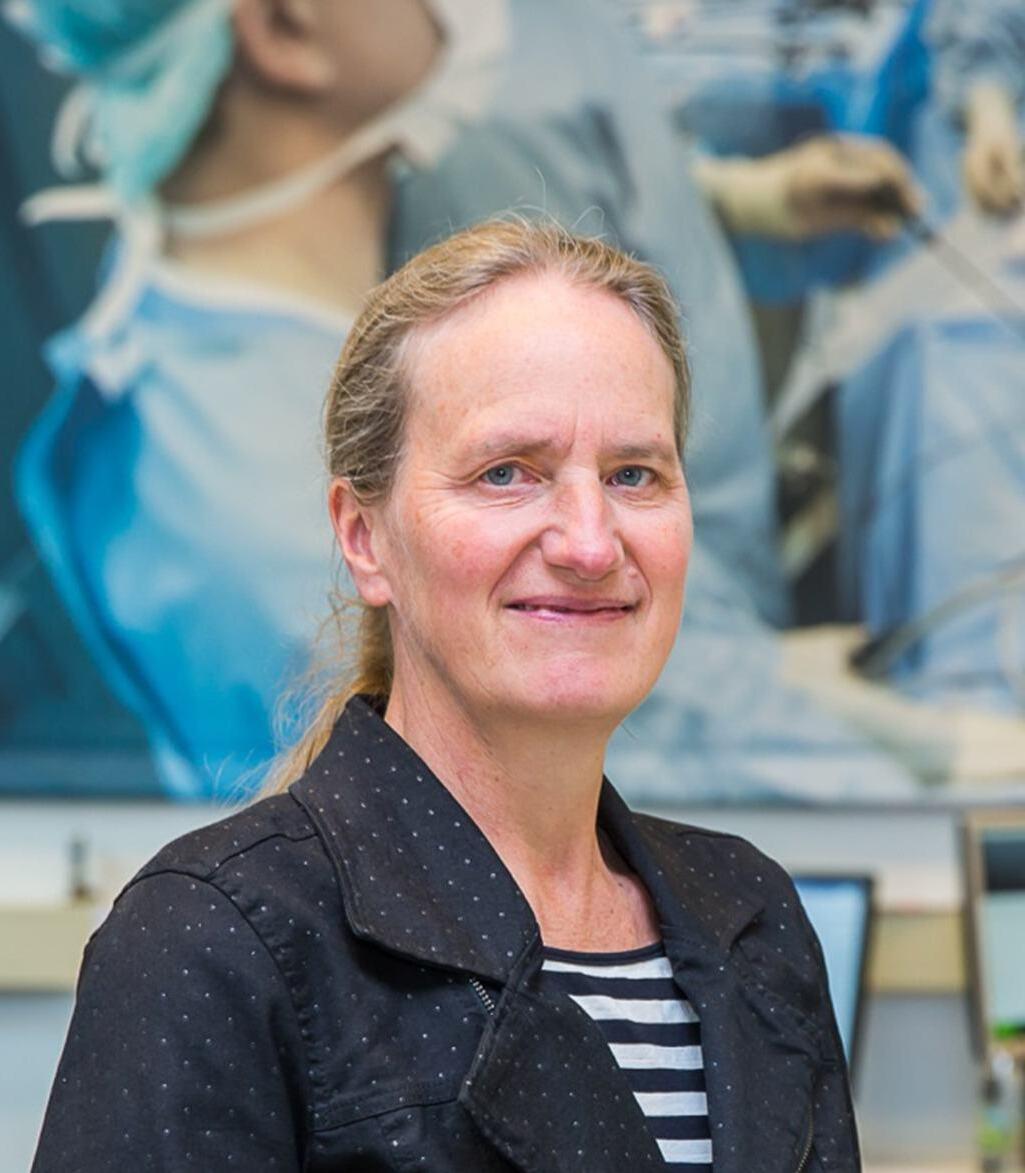

Jenny Dankelman started her academic career as a PhD student at the TU Delft after finishing her degree in mathematics at the University of Groningen in 1984. At the TU Delft, with the Man-Machine System Group, she researched the dynamics of the coronary circulation (In regular terms, this means she studies the blood flow to the heart). During her research, she got involved with a new upand-coming way of doing surgery: minimally invasive surgery, better known as laparoscopic procedures. At this point, there was no department dedicated to the study of medical devices at the TU Delft, and Jenny found it curious that the faculty of Mechanical Engineering made tools for man but not for surgeons. Speed forward to 2024, the TU Delft now has a section within the Department of Biomedical Engineering with Jenny Dankelman as one of its full professors.
One day Jenny found that someone had put magazine cutouts in her post box. They were articles describing how women
in Africa had been maliciously raped causing them to become incontinent and in need of surgery. However, surgery is expensive, so they were unable to receive the help they needed and were subsequently banished from their community because of their urine smell. After reading this, Dankelman started looking more thoroughly into the situation.
“I learned that 5 billion people in the world, 60%, do not have access to safe surgery and that 2 billion people do not have access to surgery at all. (…) So that’s how I started to think about how we, as engineers, should do something for the global community by looking into low-resource settings. “
Turns out, bringing surgery to lowresource settings is one of the best economic investments one can make. Making surgery available enables people who previously were unable to do work due to injury or disease to get back into the workforce. Consequently, these people become less dependent on their families and social services, thus releasing additional value to communities. This contributes to raising the overall economy of low-middle-income countries.
Jenny was amazed at how big of an effect surgery could have. With this in mind, she started focusing her research on developing medical surgery equipment that is affordable, reusable, and can be manufactured in low-resource settings. This is no easy task and has created numerous student projects, PhDs, and tenure trackers that focus on this area specifically.
However, with time they noticed that product development alone was not enough.
“We noticed that a lot of equipment was not working in the low-resource settings. When I visited hospitals I would find medical device graveyards. This was because they did not know how to maintain the equipment.”
After seeing this professor Dankelman took the initiative to develop a Massive Online Open Course ( MOOC) course on maintaining, repairing, and troubleshooting medical devices. It was launched three years ago and already has 10,000 learners from across the globe, many of them being from the global South. Now, they also have another MOOC on health technology management where you can learn about the whole life cycle of a medical device from procurement to disposal. Through this, hospital workers learn about all the additional costs that come with acquiring medical devices outside of the sales price.
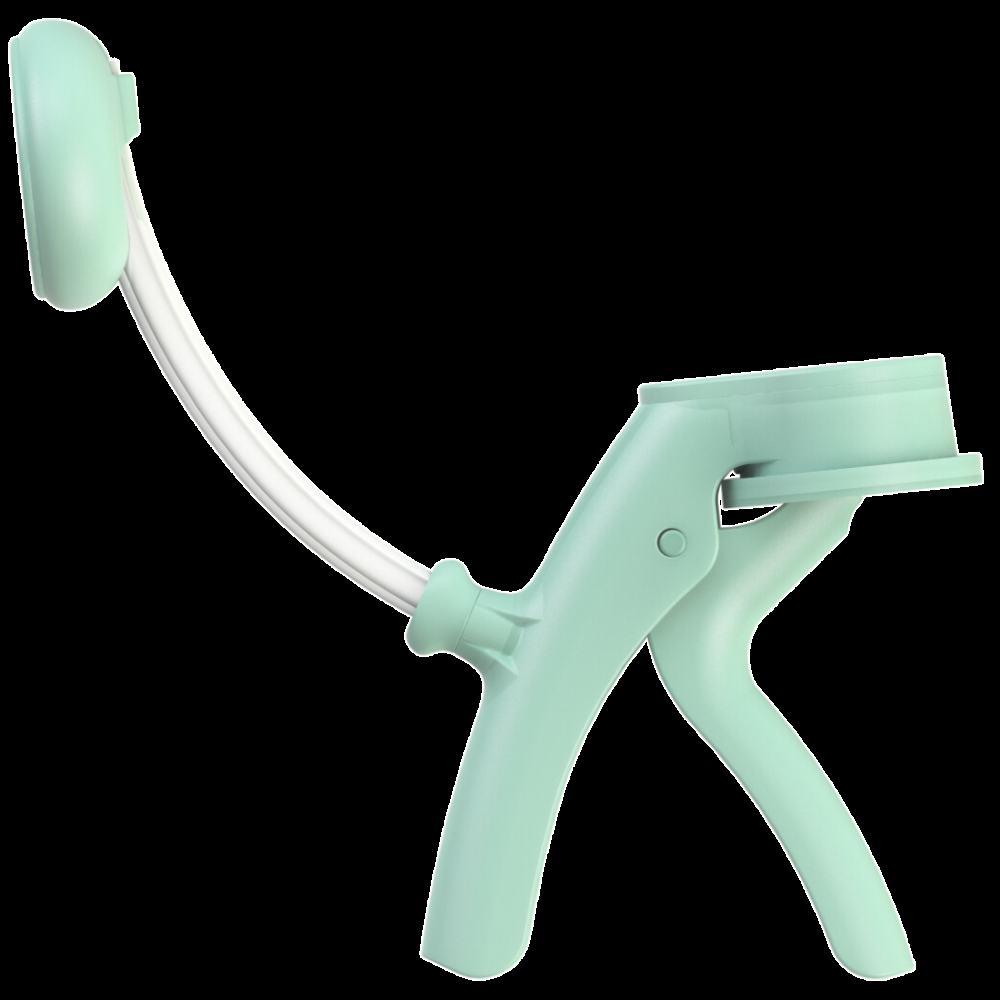
“If I’m talking about impact, I believe we have more impact with these MOOCs than what we do here with our devices .“
Jenny is now part of the steering committee of Delft Global Initiative and represents the organization's health initiatives. For her, access to health care, which can be done with little means, can make a huge difference in an individual’s life.
“If you only save one patient, it’s already worthwhile to do this”
Meanwhile, there is always room for improvement Dankelman stresses. Although TU Delft is currently developing these devices, it would be preferable that organizations in the Global South would develop them themselves as they know the context much better. This could come in the form of formal education in biomedical engineering, something that is rarely found in the Global South. This would enable individuals to start their own companies working in the biomedical engineering area.
“It would be much better if we trained them to do it themselves and gave them the skills to scale up. We have to work together on that. Here education becomes important”
Looking back, Jenny has worked on a range of projects ranging from laparoscopic surgery to vacuum pumps for child delivery. In March, her paper on surgery training systems for closing fistula openings (what causes incontinence) was accepted. Like this, one can see a loop being closed: from reading a few articles on women suffering from incontinence due to rape to contributing to solving the problem.
“We need many more engineers working in this area to support the difficult tasks that the surgeons have in lowresource settings and rural areas”
Maybe this will be you?
Student Project Support is more than financial aid. Delft Global Student Club also provides students with a platform to share their journey to the global south with the TU Delft community. For full stories, you can visit our website and Instagram page, and here is a sneak peek of four incredible stories in this section of the Globazine.
By Renske, Mobina, Fahmi, and AnnePlace: Moi Te ching nd Referr l Hospit l in Eldoret, Keny
Who: K rin n Minnen, MSc
Bio ech nic l Desig ype of project: Internshi
Goal: Est blishing 3D printing f cility t the hospit l th t is ble to oper te independently The pri ry objecti es included identifying opti l w ys in which 3D printing could benefit the hospit l, designing, testing, nd printing p rts, nd sh ring knowledge with others to ensure the future success of the f cility
Activities: Te ching, identifying ch llenges, designing p rts, nd printing
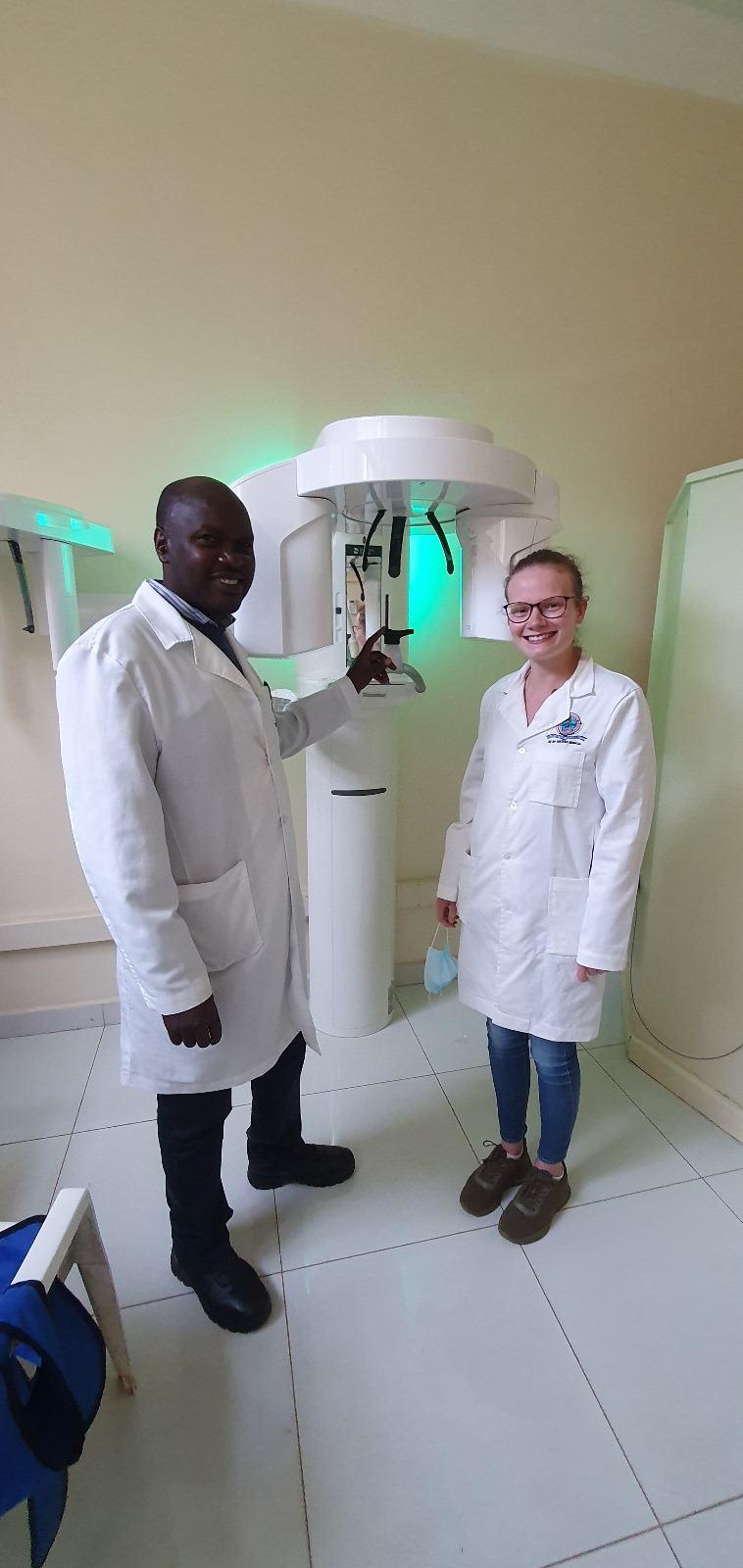


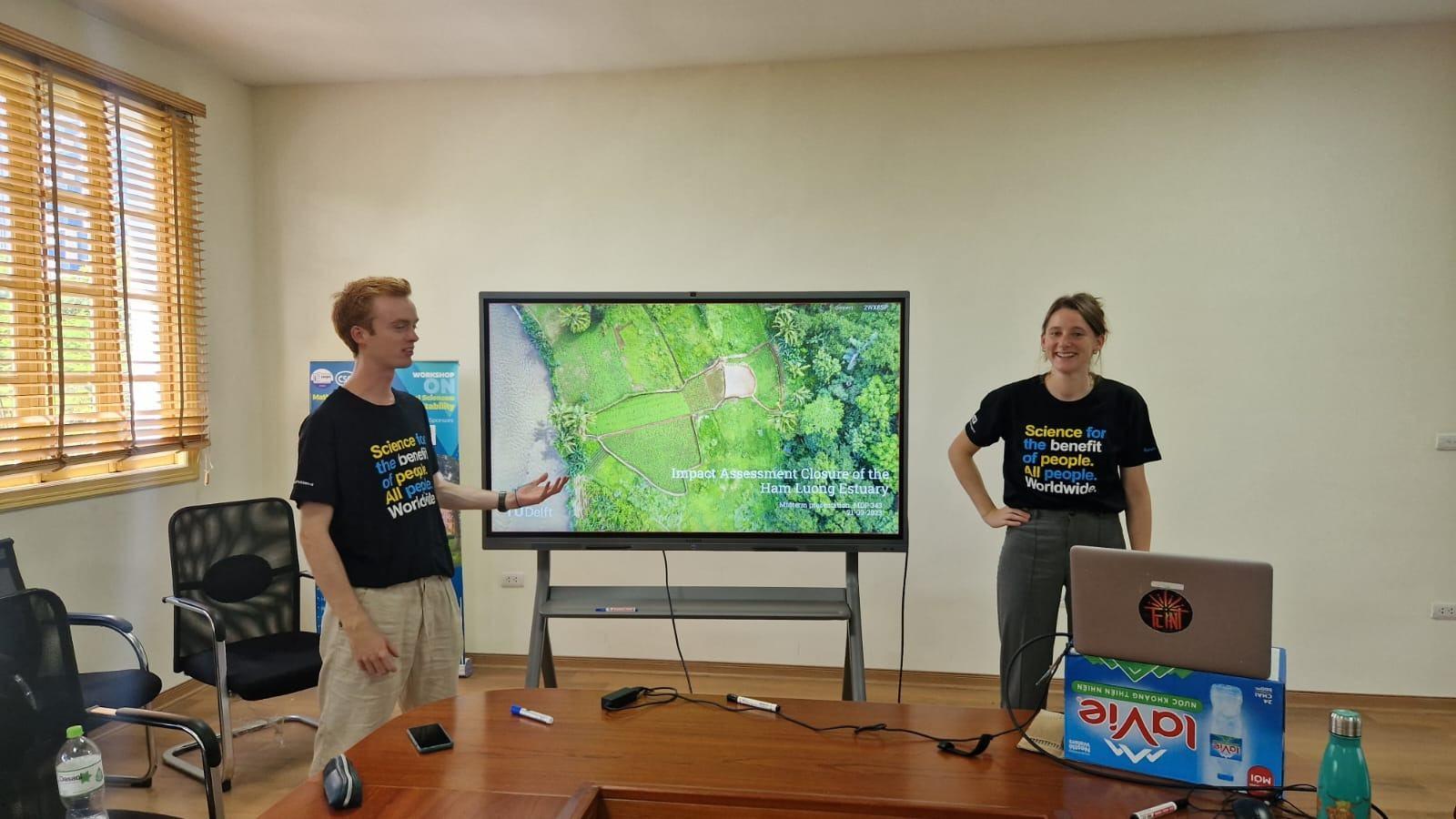
lace Thuyloi Univ rsity, Vi tna
Who 6 Civil Engin ring stud nts
sp cializing in structural, hydraulic, and offshor ngin ring

ype of p oject stud nt initiativ
Goal Conducting a Multi-Disciplinary
Proj ct focusing on th ff cts of climat chang in th M kong D lta, particularly xamining th impact of diff r nt typ s of riv r barri rs in th Ham Luong
stuary
Acti ities
Fi ld trips to Ho Chi Minh City and th
Engag d with institut s and xp rts,
Gath r d ss ntial data and insights
Community Engag m nt: Informal

Place ddu-Ci , Maldive
Who Thom (Informa ion Science, m erdam), Nicolaa (Economic and Bu ine Economic , Ro erdam), Ru h ( ero pace Engineering, Delf ), S erre (Bio Pharmaeu ical Science, Leiden
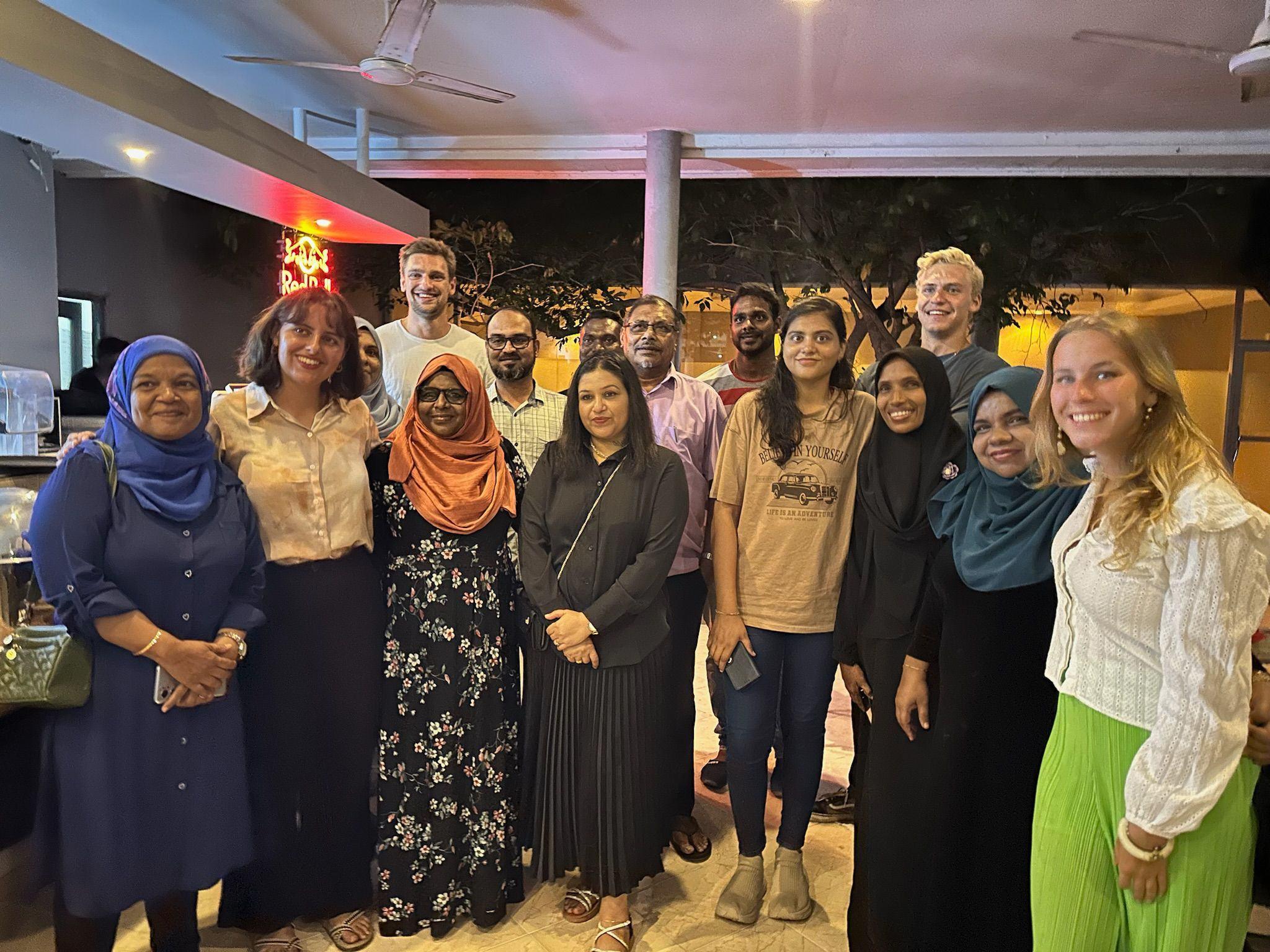
Type of project Group Projec
Goal Implemen a ion of wo compo ing echnique o proce wa e, encouraging adop ion b he local popula ion and exploring po en ial applica ion of he re ul ing compo
Thi wa a collabora ion wi h Live Learn (an NGO) dedica ed o u ainabili educa ion, for brain orming idea and e ing up ne work
Activities
Collabora ed wi h Live Learn (an NGO) dedica ed o u ainabili educa ion, for brain orming idea and e ing up ne work
Buil compo ing ki wi h a i ance from SoilGecko o proce organic wa e efficien l
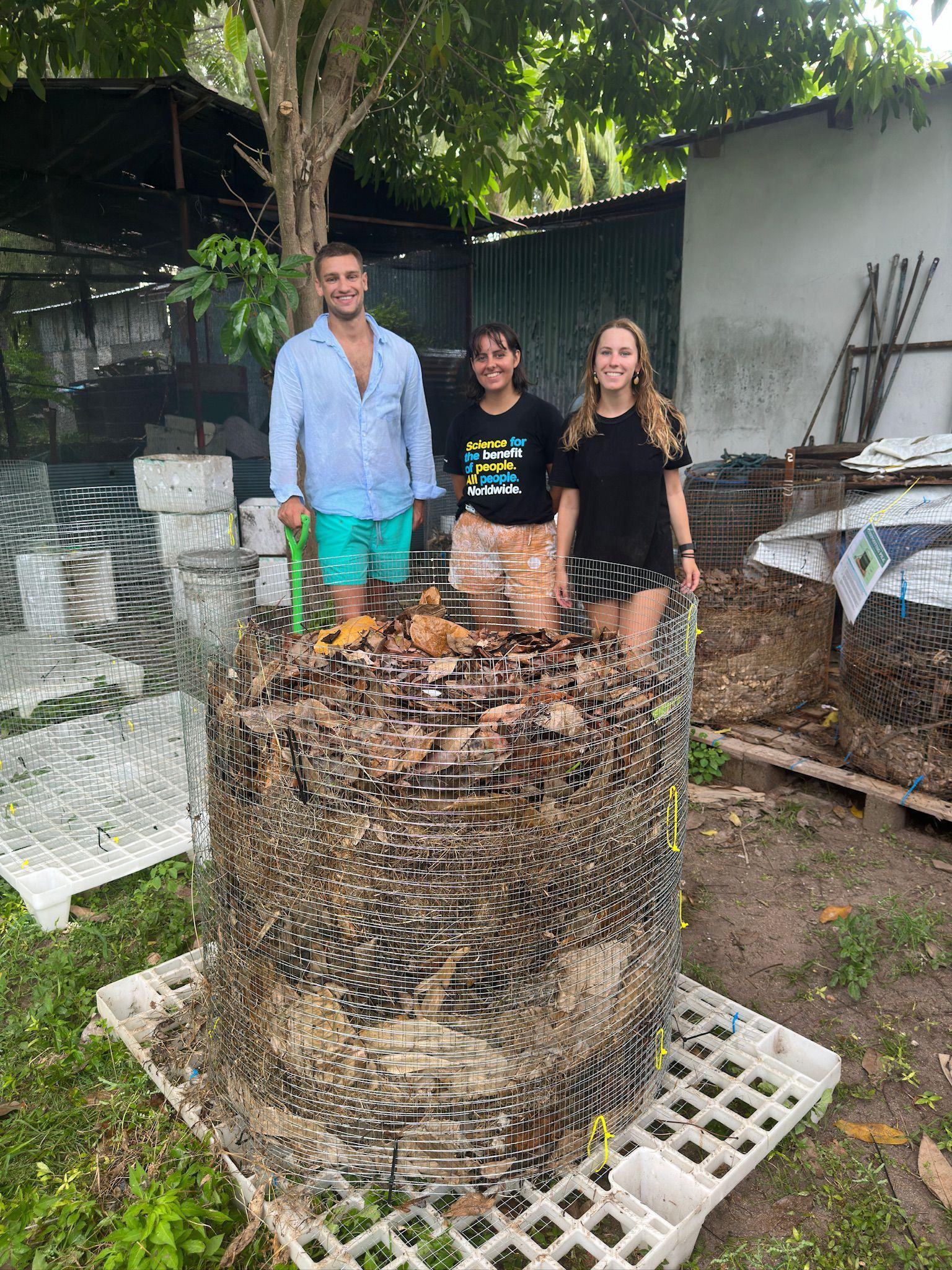
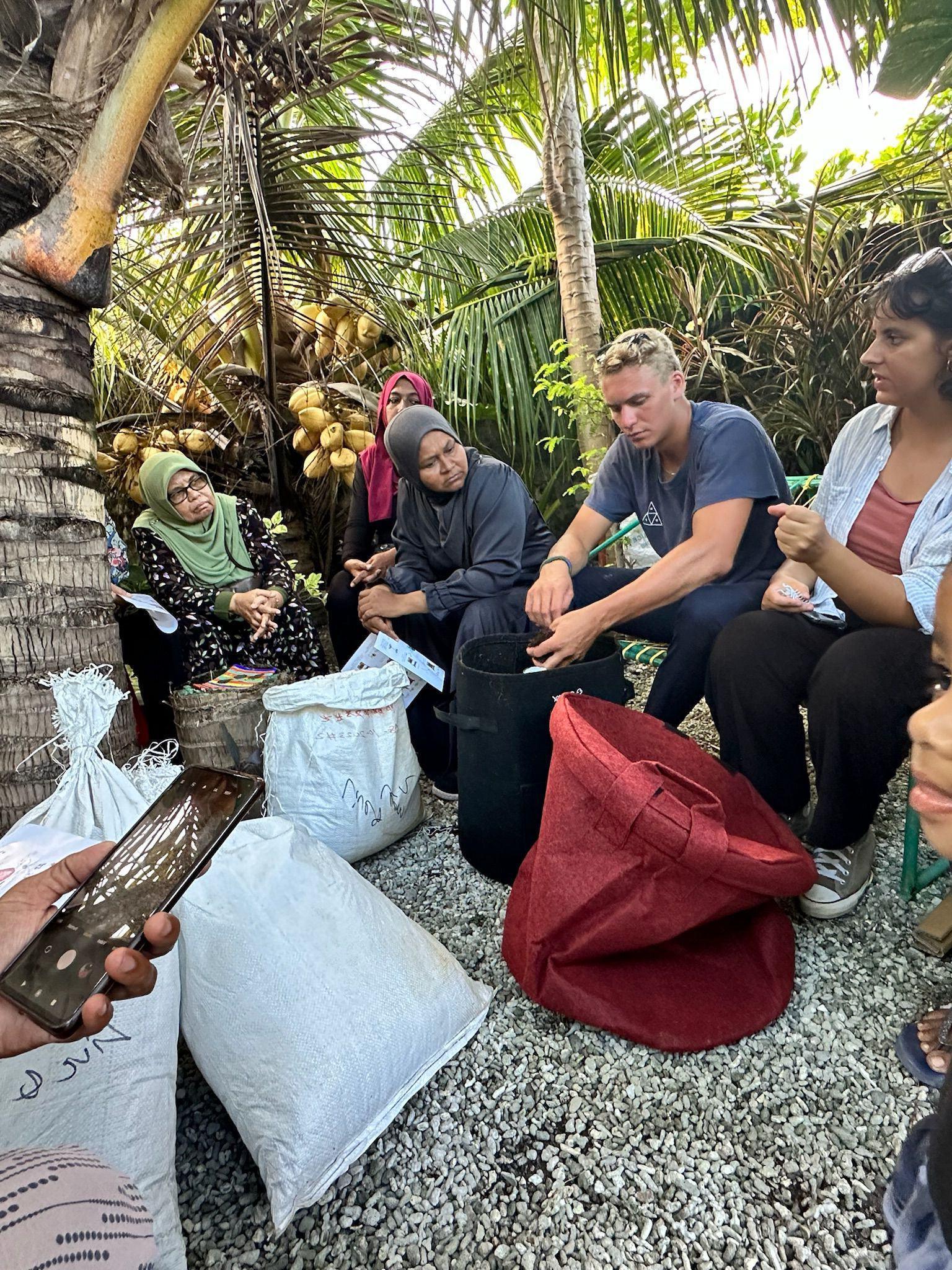
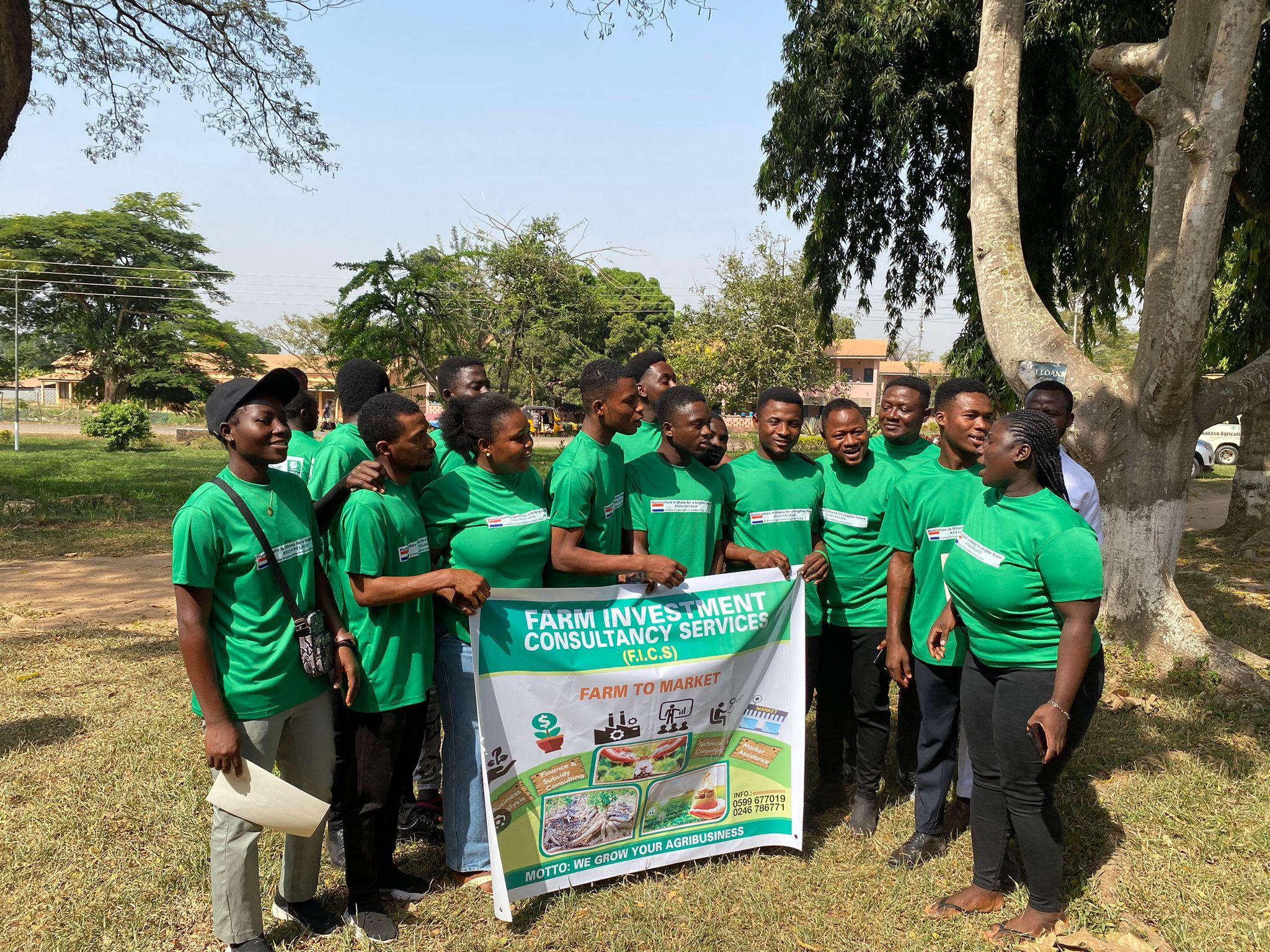
Place Kwadaso Agri ul ural Coll g & Ohawu Agri ul ural Coll g , Ghana
Who Niki a, Hannah, and Iris
In rna ional En r pr n urship & D v lopm n minor
Type of project Group Proj
Goal Evalua ion and nhan m n of h Ar hip lago program, a ollabora ion b w n Holland Gr n T h, TU D lf , and h agri ul ural oll g s, aiming o improv n r pr n urial skills in s ud n s and r du pos -harv s loss s in farming by S ak hold r Engag m n , Da a Coll ion and Analysis, and Workshop and por Act v t es
Condu d in rvi ws wi h s ak hold rs, in luding Holland Gr n T h, alumni/ urr n s ud n s of h Ar hip lago Program, and a h rs from Ohawu Agri ul ural Coll g
A nd d Ar hip lago lass s, ga h r d da a for h advisory r por , and ondu d surv ys among h oll g s ud n s..
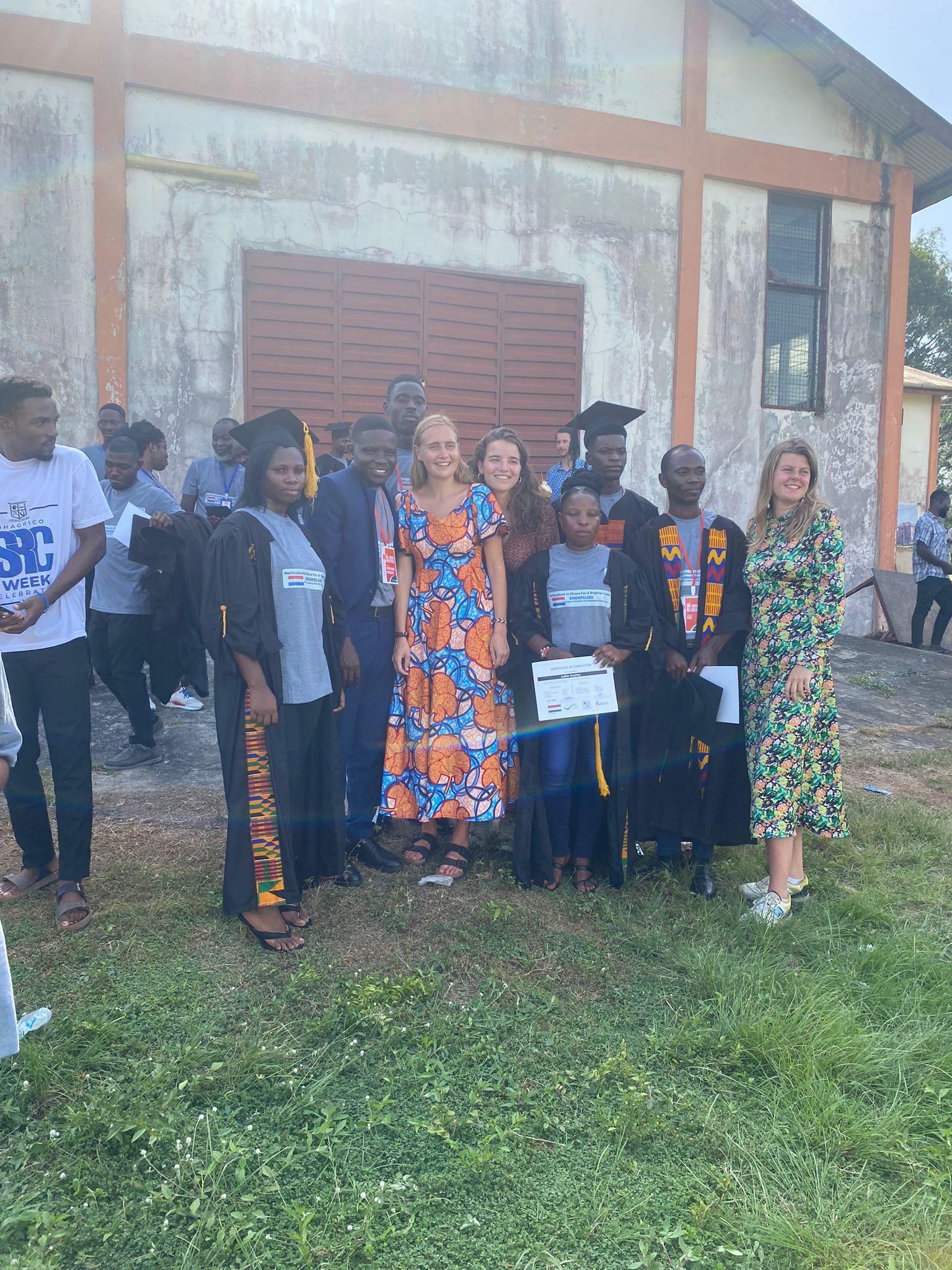
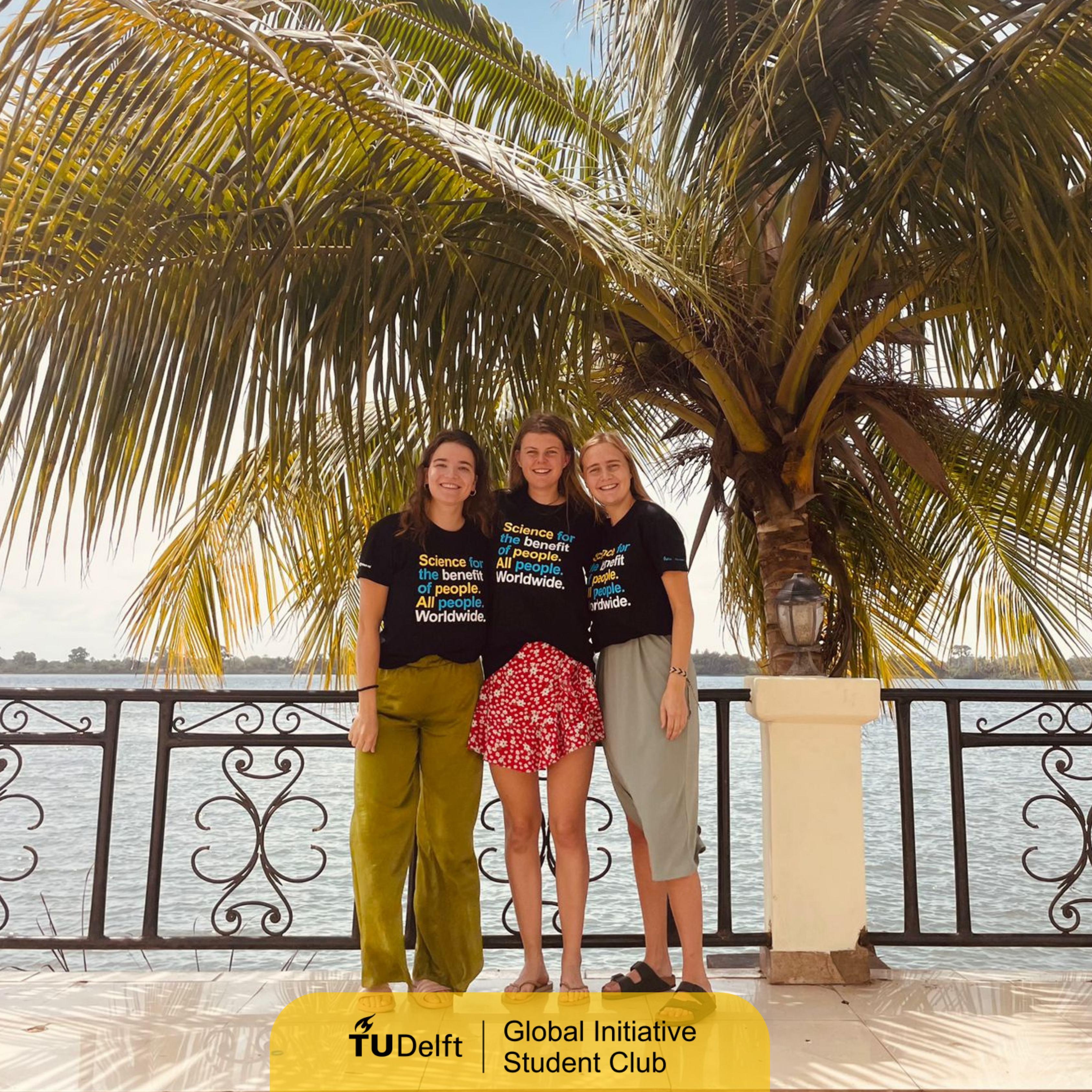
Hailing from Benin, David Agoungbome is a PhD student and a global fellow in the Water management department, TU Delft. His research focuses on analyzing the impacts of climate change on rainfall patterns in West Africa and how this affects farmers. The aim of the project is to provide in any season, value-added information service to both farmers regarding the best time to start sowing crops and to financial institutions regarding issuing loans to farmers with less risk.
By Leah Watetu Mbugua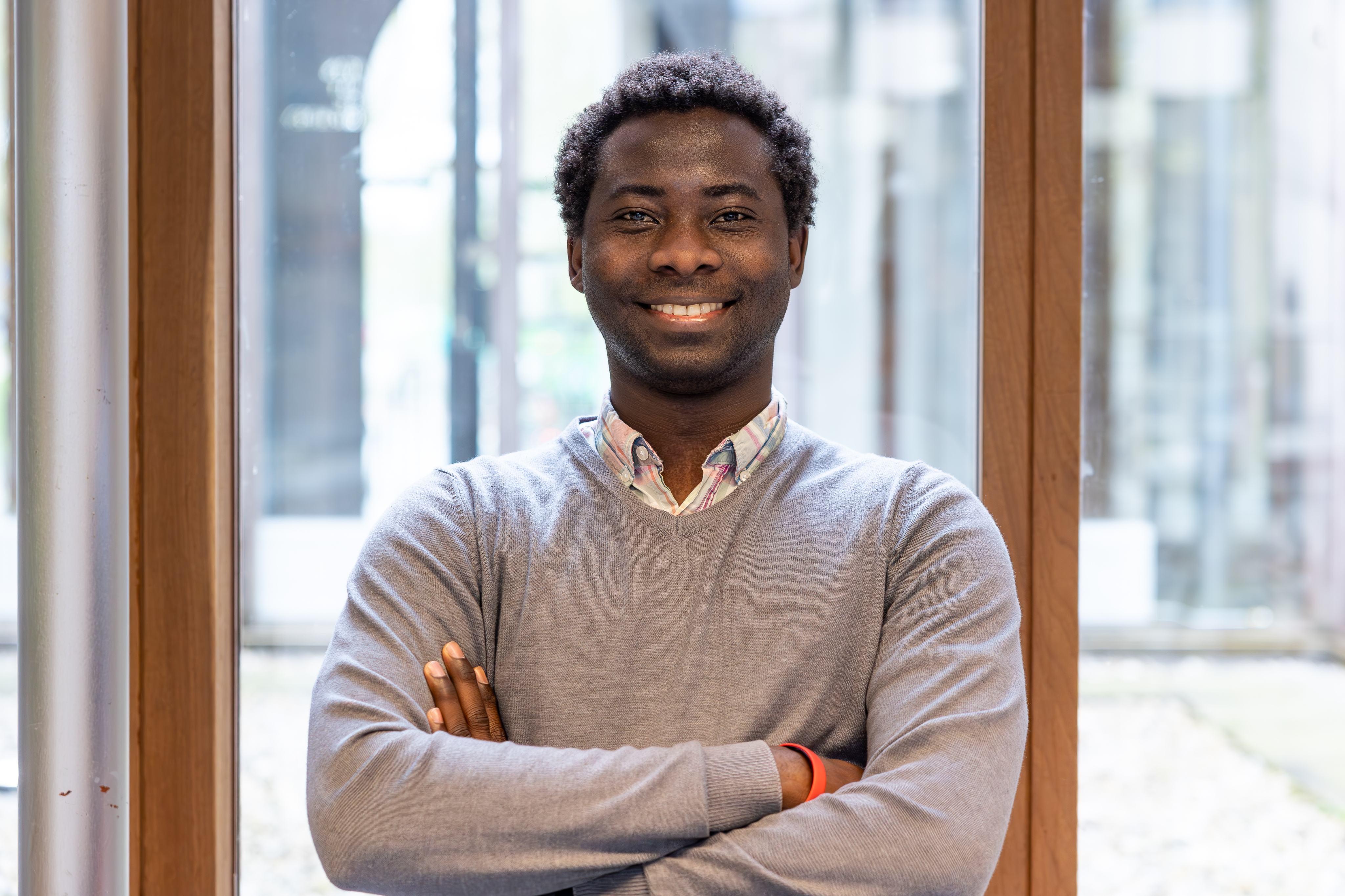
I chose to focus my research within the water sector because I wanted to make a meaningful impact on people's lives. While my mother encouraged me to pursue medical sciences, I found myself drawn to civil engineering. Within this field, I specialized in water due to the significant water challenges prevalent in my home country. Despite having abundant water resources, many people lacked access to clean drinking water. This challenge troubled me deeply, motivating me to take action.
Later on my interest in food security and agriculture in Africa grew. Recognizing the interconnectedness of water and agriculture, I saw an opportunity to address food security challenges in West Africa and beyond. My research now merges these two critical areas to enhance food security in the region.
How did you transition to thinking about the impacts of climate change?
During my master's in mathematical sciences, I focused on hydrology, aiming to assess two hydrological methods commonly used in West Africa. These methods, established in the 1980s, were once effective but proved outdated by the time of my studies in 2016. Why? Because climate change had altered the region's rainfall patterns, alongside other factors like urbanization and land use changes, rendering these methods inadequate for estimating design flow.
This sparked my interest in climate change and its profound effects on communities. Flood events, in particular, are a focal point of concern. Designing infrastructure and policies to mitigate flooding has become increasingly complex, necessitating the integration of climate change considerations into planning and decision-making processes.

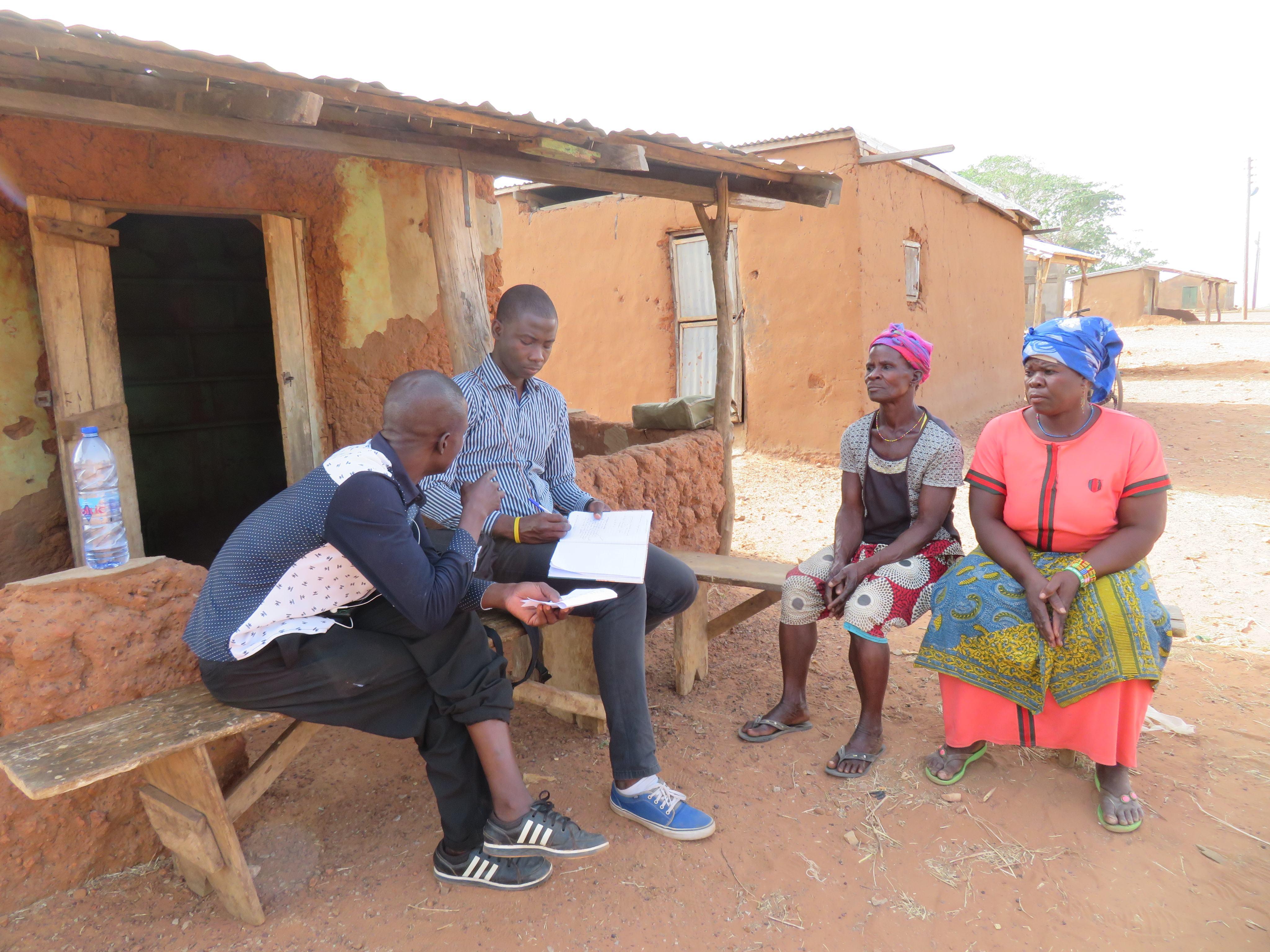
During my fieldwork, it was fascinating to observe the awareness and adaptive measures that farmers are already taking in response to climate change. Just as people in the Netherlands can recognize climate change through shifts in seasons, farmers in West Africa have firsthand experiences of its impacts on their livelihoods. So they are proactively adjusting their farming practices by using shorter-duration crops or planting more resilient varieties to cope with erratic rainfall patterns.
With our research, we uncover interesting insights that we could help them further improve. However, I've grappled with the challenge of sharing this information with the farmers themselves. Although there are companies providing recommendations based on our insights e.g. plant at this moment or use this type of crop, bridging the gap between research findings and on-the-ground application remains a hurdle.
Personally, I have not had the opportunity to directly disseminate our research findings to farmers. However, I'm hopeful that initiatives like the TU Delft Global Initiative could provide a platform for organizing workshops or training sessions to facilitate knowledge transfer.
Ultimately, ensuring that research findings reach those who can benefit from them most is a crucial aspect often overlooked in academic research. Workshops and collaborations with farmer associations could serve as effective channels for conveying information and empowering farmers with the tools to adapt to a changing climate.
What advice would you offer to students who are eager to make a meaningful contribution in the Global South?
To truly make an impact, I believe it starts with passion. If you're genuinely passionate about your work, whether it's in development, research, or any other field, that enthusiasm will be your driving force. Regardless of the challenges you encounter, your passion will provide the energy to keep moving forward. Without it, it's easy to lose motivation and give up when faced with obstacles. This was a lesson I learned firsthand when starting my PhD journey.
Additionally, it's crucial to approach your work with an open mind, particularly when collaborating with communities in the Global South. It's not about imposing solutions from outside; it's about co-creating solutions together. By entering these communities with humility and a willingness to learn, we can gain invaluable insights into their realities and challenges. Instead of assuming we have all the answers, we should listen to their experiences and understand how they're already coping with the issues at hand. Often, local communities have innovative solutions of their own, rooted in their unique experiences and contexts.
Our role, then, becomes one of facilitation and enhancement. We can take these local insights and combine them with our knowledge and expertise to develop solutions that are truly effective and sustainable. However, it's essential to involve the community every step of the way, from the design phase to implementation and evaluation.
Furthermore, collaboration with local researchers is paramount. They possess invaluable knowledge and perspectives that can enrich our understanding and ensure the relevance and impact of our work in the long run. By working hand-in-hand with local communities and researchers, we can create solutions that are not only effective but also culturally sensitive and contextually appropriate.
In essence, my advice to students aspiring to make a difference in the Global South is twofold: be passionate about your work and approach it with an open mind and a collaborative spirit. There's no shortage of challenges in these regions, but with dedication, humility, and a willingness to learn from local communities, there's also immense potential for positive change and improvement.
Beautifully said.
Thank you very much for your time and I wish you all the best in your future endeavors!
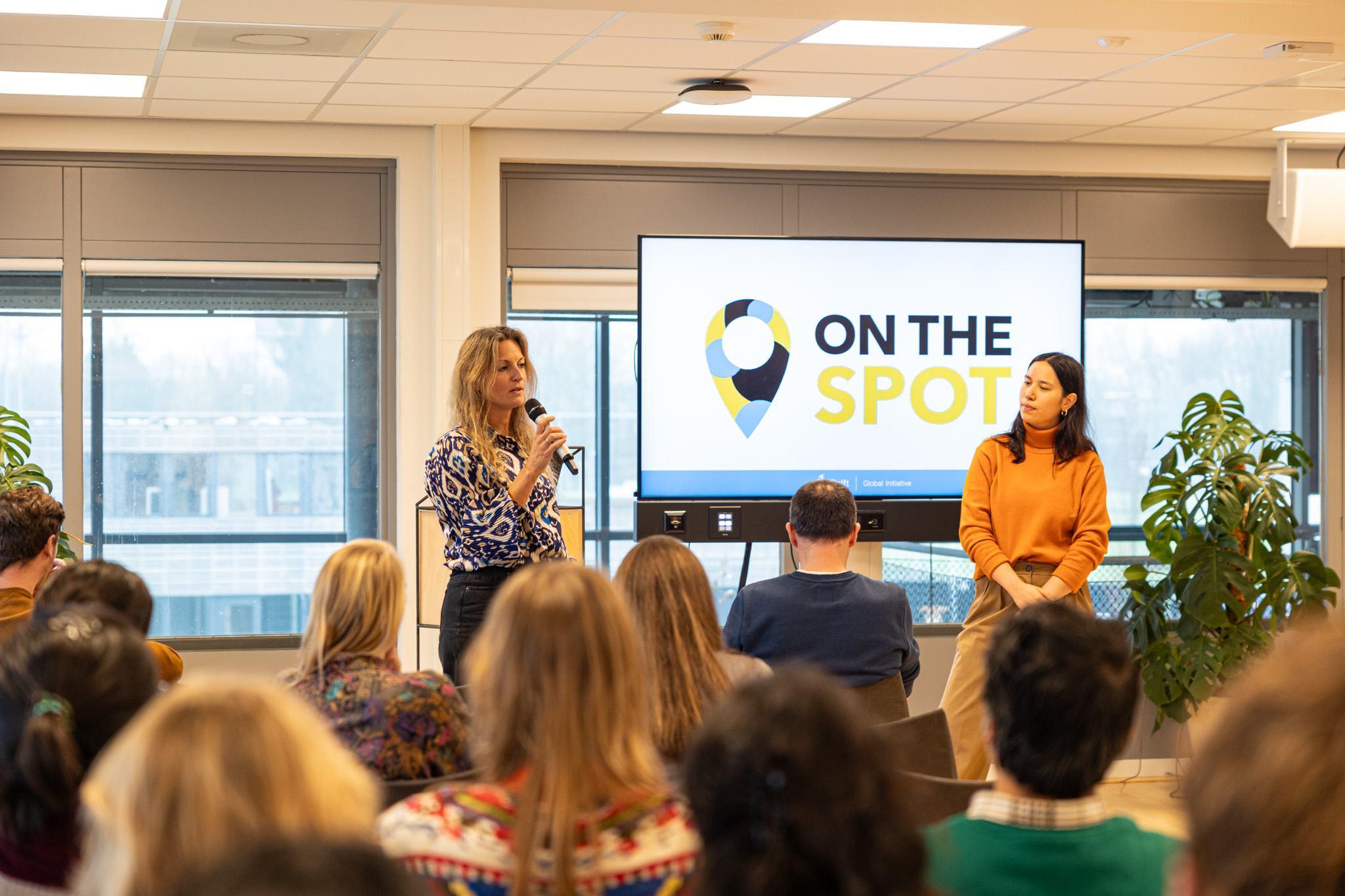


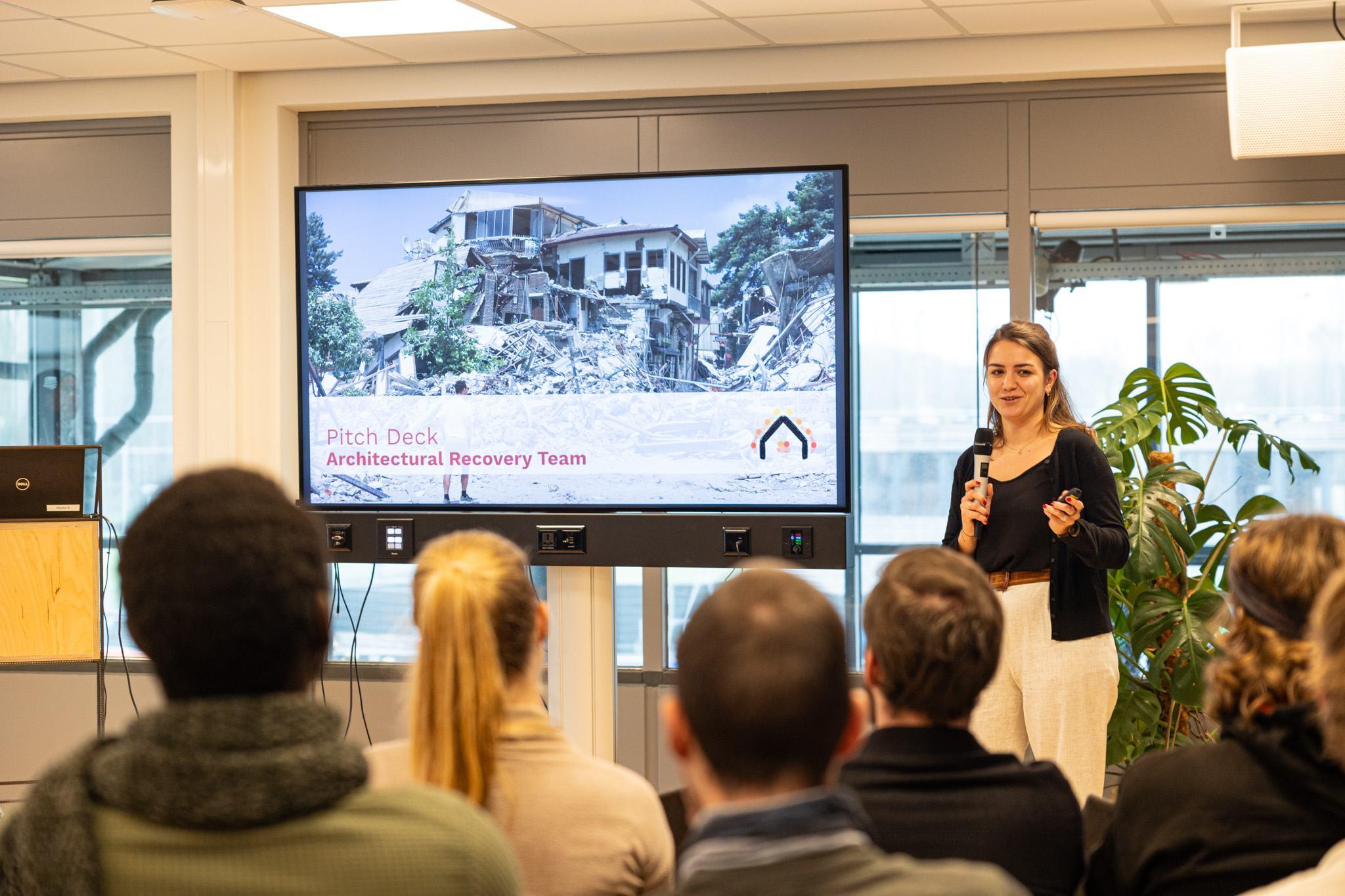


Science for the benefit of people. All people. Worldwide.
Science for the benefit of people. All people. Worldwide.
Science for the benefit of people. All people. Worldwide.
Science for the benefit of people. All people. Worldwide.
Science for the benefit of people. All people. Worldwide.
Science for the benefit of people. All people. Worldwide.
Science for the benefit of people. All people. Worldwide.
Science for the benefit of people. All people. Worldwide.
Science for the benefit of people. All people. Worldwide.
Science for the benefit of people. All people. Worldwide.
Science for the benefit of people. All people. Worldwide.
Science for the benefit of people. All people. Worldwide.
Science for the benefit of people. All people. Worldwide.
Science for the benefit of people. All people. Worldwide.
Science for the benefit of people. All people. Worldwide.
Science for the benefit of people. All people. Worldwide.
Science for the benefit of people. All people. Worldwide.
Science for the benefit of people. All people. Worldwide.
Science for the benefit of people. All people. Worldwide.
Science for the benefit of people. All people. Worldwide.
Science for the benefit of people. All people. Worldwide.
Science for the benefit of people. All people. Worldwide.
Layout & Graphics by Kalyani Chopade :)